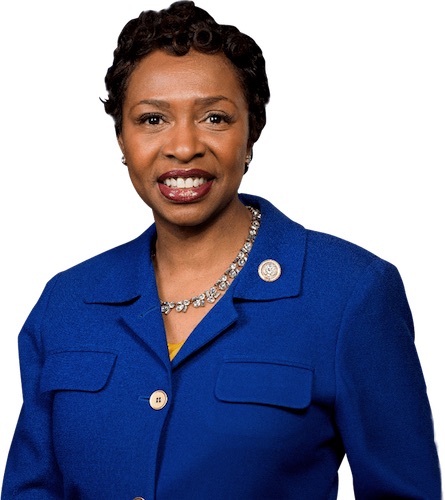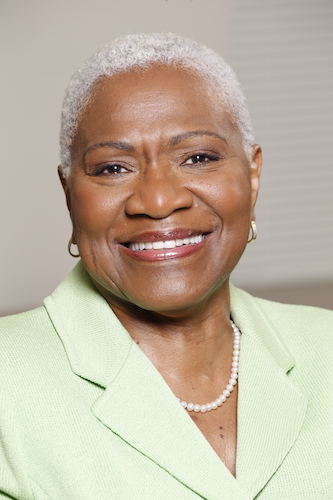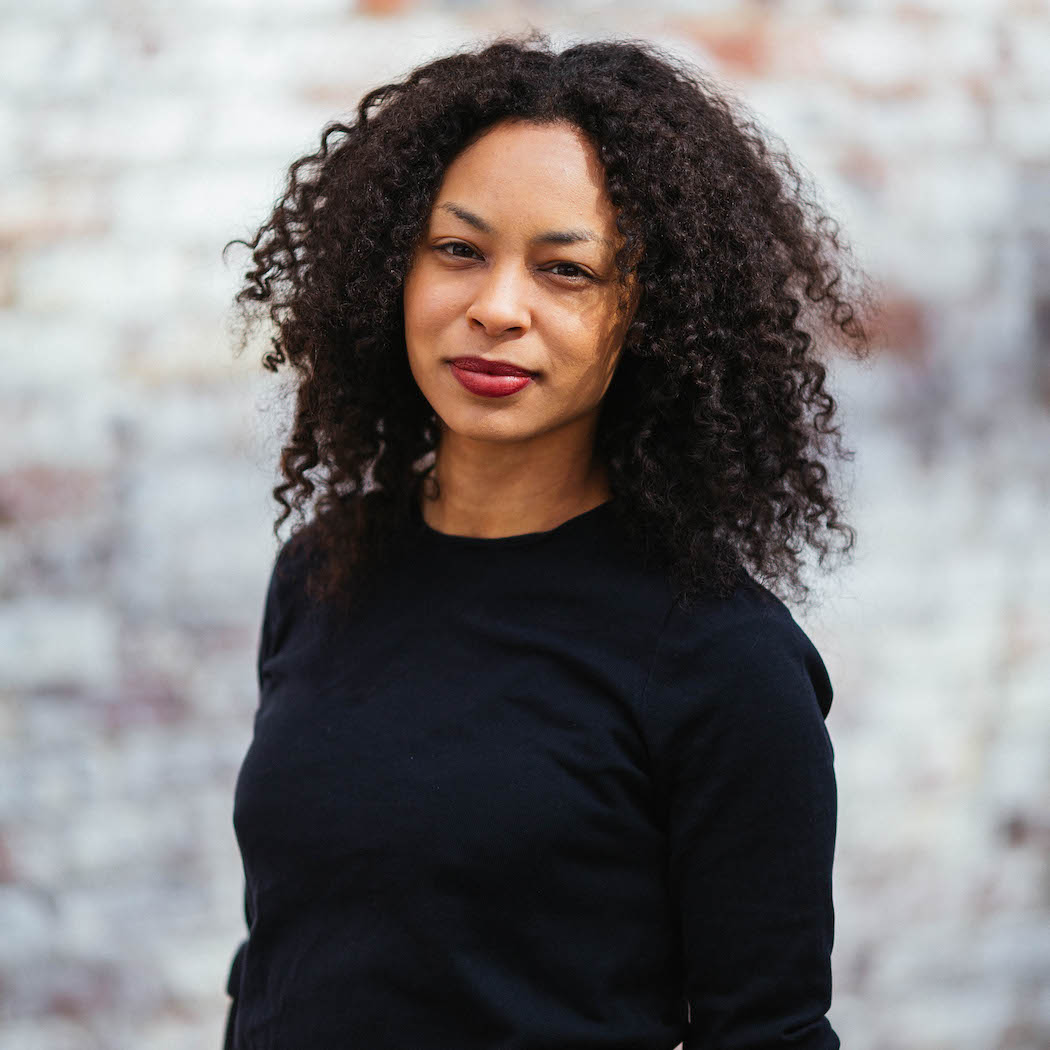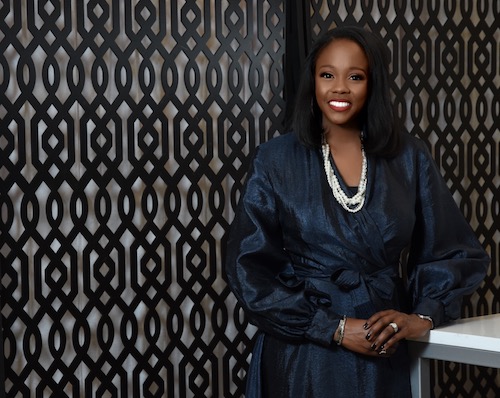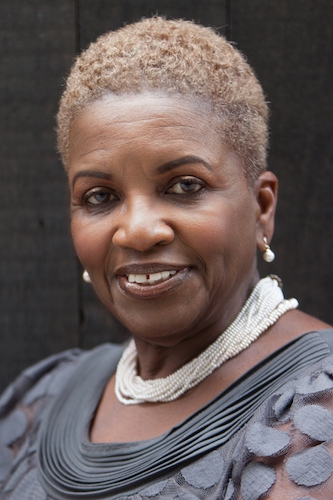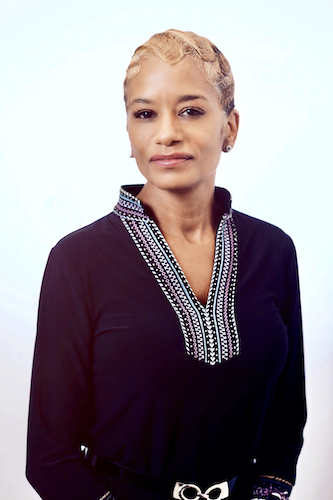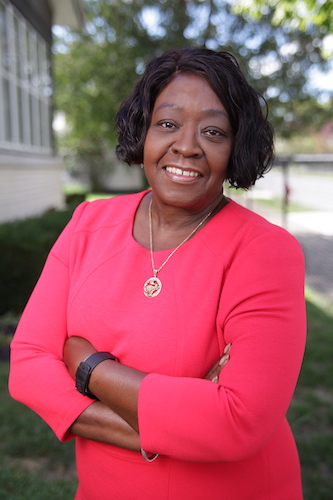As the nation turns its attention to the penultimate power move for a Black American woman – becoming vice president of the United States – let’s note that this triumph isn’t happening in a vacuum. Black women have long had a pivotal, yet overlooked, role in politics and government. They believed in women’s suffrage back when (white) women’s suffrage didn’t truly believe in them, as local voting rights activist Sarah Jane Smith Thompson Garnet did over 100 years ago. They believed that a Black woman belonged behind the Resolute Desk decades before one was elected a heartbeat away, as New York Rep. Shirley Chisholm did when she ran for president in 1972. They agitated, organized, ran and served, still breaking barriers long after it seems reasonable that they have to.
Today, state Senate Majority Leader Andrea Stewart-Cousins is second in the line of succession to the governorship. State Attorney General Letitia James is two steps behind her, and making national headlines. Mayor Lovely Warren runs Rochester, the state’s third-largest city, while the list of Black women vying to lead its largest city grows.
In this special collaboration with The New York Amsterdam News, we’re speaking to Black women who hold – and have held – leading roles in state government and politics, to hear what drives them despite the challenges they face and to learn how they navigate the corridors of power.
- Sheryl Huggins Salomon, Guest Editor
Andrea Stewart-Cousins, New York State Senate Majority Leader
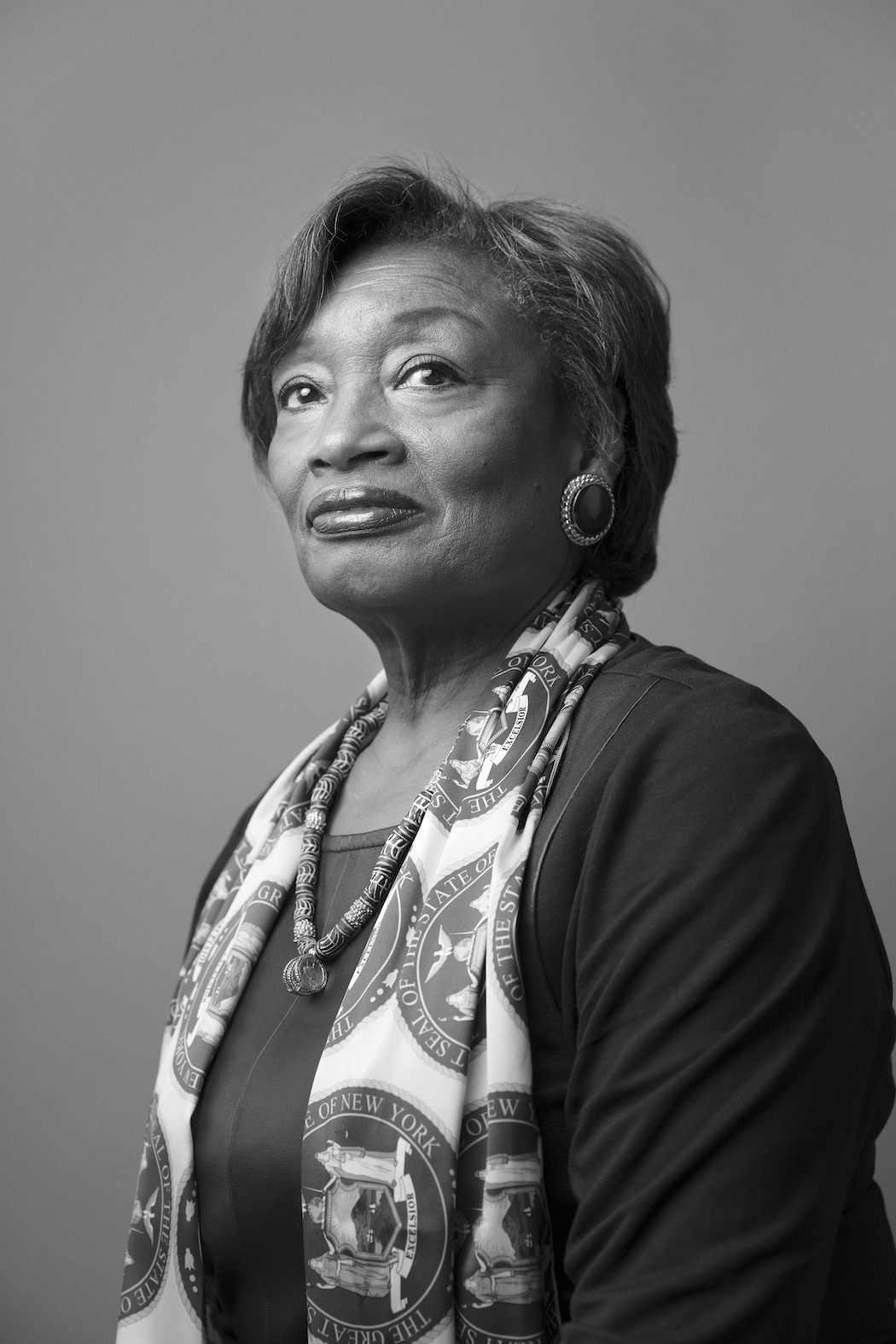
- People have always underestimated me. I am a Black woman who did not come from money and grew up in the ’60s when racism and sexism determined your position in life. My career began at the New York Telephone Company. I did not know it at the time, but the company was accused of discrimination against women and minorities for not promoting them internally. A consent decree forced my employer to do what was right, and eventually I was promoted into the marketing division. The new position afforded me more money and opportunity, which made an enormous difference in my life, as a single mother.
- My first major step into public service was volunteering for a mayoral candidate who supported a court ruling to desegregate the city of Yonkers. The candidate who I backed later won and asked me to join his administration as the director of community affairs. I was the first woman and woman of color to hold this position, and it was my job to bring the city back together after this divisive period. It was then that I realized how government can create and remove obstacles, whether it be because of race, ethnicity, religion, socioeconomics, gender, etc.
- In 1995, I ran a primary against a seasoned Democratic incumbent on the Westchester County Board of Legislators. My opponent also had the backing of the Republican Party, but I beat him. Then, I went on to author the first human rights law in Westchester County. To get this done, I worked with colleagues and advocates to counter opponents who wanted to deny, first, that racism existed, and then that the LGBTQ community should be represented under this law. I would not establish a commission that allowed for discrimination against some people. After two years of hard work, the Westchester County’s Human Rights Commission was established and began accepting complaints.
- My mother, Beryl Stewart, was my first mentor and an incredible inspiration. She faced racism and sexism, but was grounded in faith, family and education. She was a fierce advocate for her children, and she showed me the meaning of working hard and never giving up. She was smart and driven and could have been a promising lawyer, if the opportunity had been there for women and women of color. She was politically savvy and wise, and I credit her with encouraging me to first run for office in Westchester County, and then to take on the challenging run for New York state Senate. I would not be who I am today without her.
- In 2012, I was the first woman in New York state history voted by my peers to lead a conference of the state Legislature. Meanwhile, the Independent Democratic Conference ensured my conference was shut out of the majority. At the time, five breakaway Democrats brokered a deal with Republicans to keep them in power, which meant they could determine the policy agenda moving forward. It was certainly a setback.
- Part of the navigation is having the power. We united the [Democratic] Party and gained the majority in 2019. That year, I was voted majority leader by my peers and made history again as the first woman and woman of color to hold the position. This put me “in the room” and allowed me to push policy forward and pass legislation that reflected the values of my conference and the majority of New Yorkers. For instance, we codified Roe v. Wade and moved abortion under the health law, passed the Climate Leadership and Community Protection Act, setting New York on a path for the most aggressive clean energy target in the nation, passed the Child Victims Act to extend the statute of limitations for child sex abuse cases and passed comprehensive criminal justice reforms.
- Racism, sexism, being an ‘outsider,’ being underestimated or being outspent impacted me for years. In 2004, I ran for the NYS Senate against a powerful 28-year Republican incumbent. For months, votes would be counted and recounted by poll workers due to lengthy legal battles. In February 2005, I lost by 18 votes, but as I always tell people, ‘You cannot give up when met with a setback.’ I ran again in 2006, vowing to clean up corruption in Albany and to address voter suppression. This time, I won by more than 1,800 votes.
Letitia James, New York Attorney General
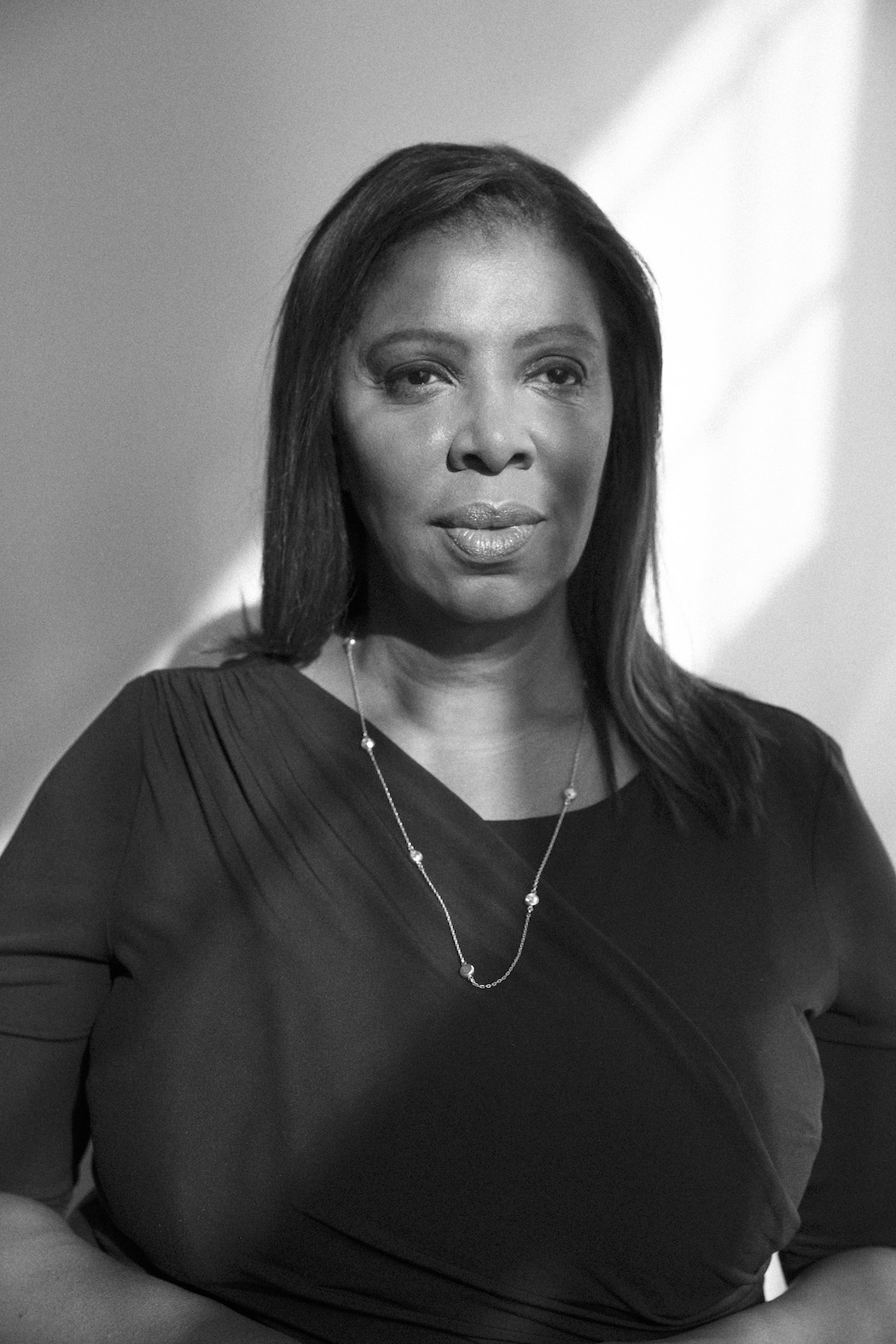
- For a lot of Black women in politics, one of the main hurdles is fundraising. I come from humble beginnings. I put myself through school. I did not have access to deep-pocketed donors, or a prominent family name, nor did I work for a big law firm. I didn’t have the connections that are often considered essential when you run for office, especially the first time. All I had was my voice, my experience and my passion. For me, that was enough.
- In politics, and in life, I deal with every kind of person – white, Black, young, old, rich, poor, Democrat or Republican – and I treat everyone with the decency and respect that I expect in return.
- Retiring state Sen. Velmanette Montgomery is a mentor of mine. I met her as a staff member working in the New York state Legislature. I recall meetings where she was one of the few women in attendance in a room filled with men. She refused to limit her comments in the face of hostility. She spoke up about what she believed in, what she knew was right, for individuals who were historically ignored.
- I also learned a great deal from former Assembly Member Annette Robinson. She is a political force, and an unapologetic champion of Brooklyn. From her, I learned the power of using your voice to create the type of change that New Yorkers can see and feel every single day.
- Through Velmanette and Annette, I learned the importance of civic duty, community leadership and mentorship. I’ve become a mentor to several Black women elected officials over the years both here in New York and around the country.
- The best advice I’ve ever heard is a quote from Congresswoman Barbara Jordan. She said, “More is required of public officials than slogans and handshakes and press releases. More is required. We must hold ourselves strictly accountable. We must provide the people with a vision of the future.” That is the kind of public official that I’ve always strived to be.
- Back when I was deciding on law schools, someone told me to not pick a Historically Black College and University (HBCU) because it wouldn’t open as many doors for me down the line. HBCUs offer immense culture, brilliant professors and mentors, historic significance, and a perspective on life that you can’t get at any other institution. I wouldn’t be where I am today had I not attended Howard University. There’s also no doubt that Vice President-elect Kamala Harris, another proud graduate of Howard University, would not be where she is today without that HBCU experience.
- There were times earlier in my career when individuals either expressed to me that I didn’t deserve to be where I was, ignored me, or refused to take me seriously. I was not welcomed at their table. But my SHE-ro, the late Congresswoman Shirley Chisholm, once said, “If they don’t give you a seat at the table, bring a folding chair.” And that’s exactly what I did. I brought my own chair and, in some instances, I created my own table.
- I realized at a young age that if I wanted to reach my goals, I couldn’t let people filled with bias, prejudice and hate define me. There will always be haters and nay-sayers, but at the end of the day I’m here to find justice for all New Yorkers, whether they agree with me or not, and whether or not they dislike me because of things I cannot control. Finding justice and speaking truth to power will always be my priority.
- I am committed to continuing the work to fight for those who can’t fight for themselves. My No. 1 goal will always be to enforce the rule of law and to use it to ensure that traditionally marginalized communities are protected and disenfranchised groups are empowered. No matter the chaos surrounding us, the law must be the firmest pillar of our democracy. I will always break through that chaos and fight for justice, equality, and inclusion.
Amelia Adams, President, Adams Advisors
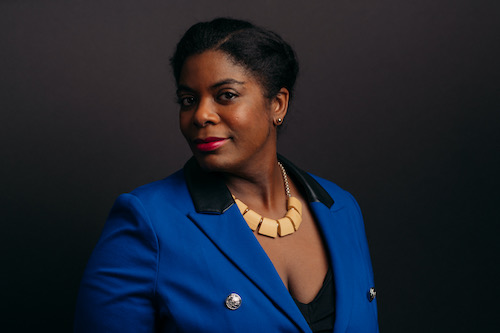
- (The obstacles I faced at the start of my career included) being comfortable with entering and owning the conversation (when dealing with) organizations and spaces that dealt with Black issues, but were being led by white, mostly male voices.
- (I navigate the world of politics by) building relationships and friendships with Black women who have been in the field longer. I have also tried to get to know every player. Ignorance is the biggest obstacle. Even if you don't agree on every point an open line of communication is key.
- (My short-term goal) – survive 2020 and pick up on international travel! Grow my business in a smart and sustainable way. Professionally, (I want to) build the bench of people that look like me and get at least 21 women into the New York City Council in 2021.
Rodneyse Bichotte, Assembly Member and Brooklyn Democratic Party Chair
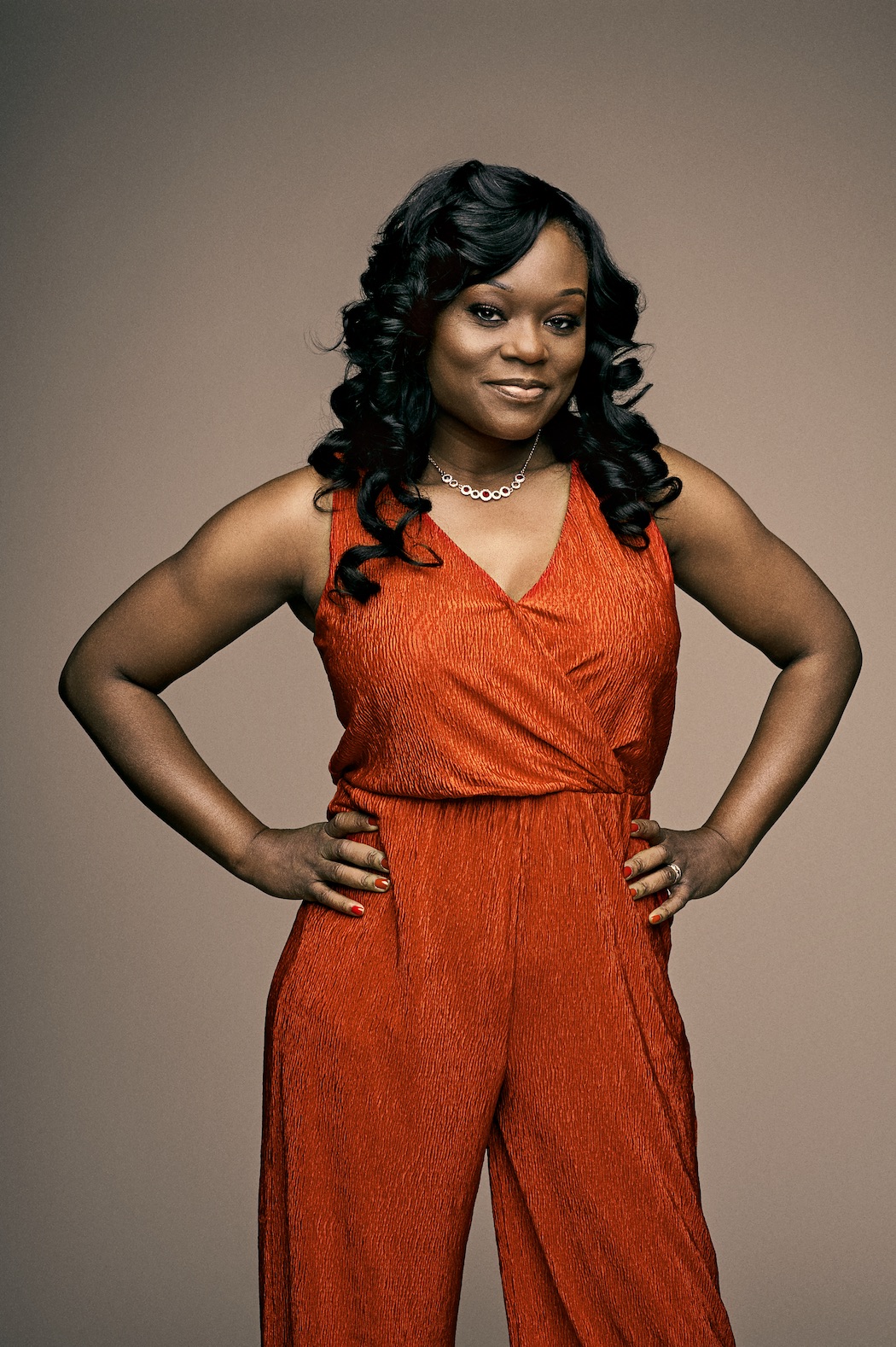
- Regarding my legislative career as my fourth career, I had to get up to speed with managing an office, writing legislation and providing constituency services, while still having to campaign. It was challenging to work out of half of an office for two years.
- I draw strength from my elders such as Rosa Parks, Harriet Tubman, and Sojourner Truth. They are examples of strong Black female leaders. I've navigated those relationships in my previous careers as an engineer and a Wall Street banker, and as the first Black woman to head a county party in New York City, I am constantly tested on my ability to lead, raise money and run campaigns. Also as the chair of the Minority and Women-Owned Business Enterprise Subcommittee, I frequently face issues surrounding increasing economic equity for smaller businesses competing with larger corporations traditionally run by white men.
- I have a number of mentors, many of whom are women. I have benefitted by listening and following by example. Mentoring helped me succeed in my role.
- I also have mentored a number of people and have helped them run for office or work in government.
- Find passion in your work. Helping my community is something that I love doing every day.
- The worst piece of advice I received was not to work.
Karen Boykin-Towns, President and CEO, Encore Strategies
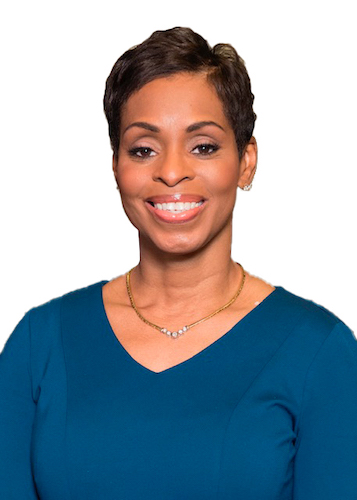
- In thinking about where we are I cannot honestly say anything has changed or challenged how I do business. I've always been authentic as a leader and unafraid to speak up even when it might not have been popular. Funny enough I’m always looked to as the one to “say it.” I do feel a greater sense of urgency in the work to bring about change both in society and corporate America. We currently have a window of opportunity that will eventually close, so it is imperative that we move at a deliberate speed as it relates specifically to diversity, equity and inclusion efforts.
- I’d be hard pressed to know of any woman of color who hasn’t experienced bias at some level. It could be overt or any one of the many microaggressions that can be exhibited. Either way, I have always found ways to deal with it.
- The worst piece of advice I ever received came during the time when despite all of my success I wasn’t being promoted beyond senior director. After confronting my manager, I got him to agree for me to have an executive coach and a 360-review. While it came back with very positive feedback one item of advice that was provided by one of the executives interviewed was, “Karen should smile more in her interactions because she is so serious and it would make others more comfortable.” They went on to say, “Karen should share more about herself and what she does on the weekend. She is trying to break into a level which is like a club and they need to have a better sense of her.”
- I started my career in government/politics working for then state Sen. David Paterson, where I learned a tremendous amount. Any “obstacles” I faced, I had a supportive network led by the senator and our staff which operated as a family. It is the learnings from here that allowed me to navigate the true obstacles I faced as I transitioned into corporate America. They included working in an environment where I knew going in I was making less than most at an entry level, but more than what I had made in government. There was a bias/concern on my ability to make the transition so it was important for me to work hard and show value quickly. I did just that and received great performance reviews but I was consistently compared to a white male who came in a year after me. For years they kept us at the same level despite the impact I had within the department and company. At one point during a performance review my manager said, “We don’t know what to do with you.” Several years with the company and with a stellar reputation for getting things done, I knew it was time to take things into my own hands. I sought out our CEO for guidance and support.
- Remember when I said I took things into my own hands and went to the CEO? The CEO at the time was someone who I had intentionally built a relationship with when he was general counsel. I had worked with him on a few high-profile projects that were important to his success and helped with his elevation. Knowing he thought highly of me, I sought his advice on how I could advance having been with the company for nine years and getting feedback like "they don't know what to do with me." What he said to me I will never forget. He advised that in large companies working hard and doing great work only gets you so far. You must have people who speak up on your behalf and provide you with a "turbo boost" and he was going to do that for me. Indeed he did and I finally broke through the senior director level, ultimately retiring from Pfizer as the only Black person to report to an ELT member (a senior executive who reports to the chairman and CEO) and one of the top 200 executives in the company of 90K employees. It’s important to note that after giving me a “turbo boost” approximately two years later he left the company. I continued to excel but without his initial help none of what came after would have happened.
- I’m blessed to have many mentors/advisers who comprise my personal board of directors. Each has a role and purpose that help me navigate the various aspects of my career. When considering leaving Pfizer, I had those who were able to help me properly plan for my departure and make sure all things were in order before doing so. Having never worked for myself, members of my (board of directors) have been critical in helping me properly set up my consulting business. They have shared insights that have been invaluable including making introductions to individuals many of whom have become clients. Most importantly they push me to think about ways to take Encore Strategies to the next level.
- My personal mantra is “I’m blessed so I can bless somebody else,” therefore mentoring is something that is consistent in my life. Most times I too benefit from these relationships. My “mentees” range from leaders in their own right like L. Joy Williams who was my planned successor of the NAACP Brooklyn Branch; Meenu Matthews who was valedictorian from George Washington University and now a JD candidate at Columbia Law School; Nasaiah Hoskins, president of the PA NAACP Youth & College Division; and, Valerie Brooks who will be graduating next year from Hampton University School of Pharmacy, just to name a few.
Yvette Buckner, Managing Director, Tusk Strategies
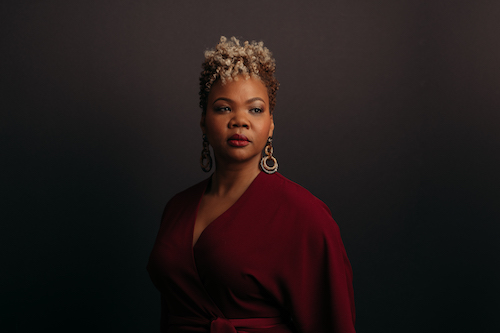
- Politics has long been dominated by white men, but I make sure to not be confined by that power dynamic. I take the opportunity to provide innovative thought and action and a diverse opinion that is not ordinarily heard to get a seat at the table. In a city that is “majority minority,” I bring my grassroots organizing experience and the interests of those who have been historically disenfranchised and not invited to the table although they are affected each and every day by the decisions being made in those rooms, and I help to make their voices heard.
- In this centennial of women’s suffrage, I am working to get more women elected to public office on a city, state and national level, with 21 in ’21 to get 21 women elected to the New York City Council in 2021 and with Vote Mama to get mothers elected across the country. My goal is to continue being better at what I’m doing and helping more women hold public office so that their voices are at the table when decisions are being made on education, health, housing and other policy areas. My goal is to continue making the world a safer, better, brighter and more equitable place for my daughter and future generations.
- I currently have two mentors – one male and one female because they give me different perspectives and help me to expand my thinking in different and unexpected ways. They provide me with a tremendous amount of support and push me to do better and be greater. I particularly value my female mentor who reminds me of the work-life balance and to remember that I am setting a great example for my daughter of a successful working woman.
- I also am working closely and mentoring many of the women candidates running for public office via my commitment to 21 in ’21 to get 21 women elected to the New York City Council in 2021. But mentorship is not confined to a formalized relationship. I strive to be an exemplar to all who see me and welcome anyone who thinks I may have something to teach or offer.
- I believe (bias) has (impacted my success) in ways that are both seen and unseen. However, I try to turn adversity into opportunity. I continue to bring my lived experience, wealth of knowledge and value as a Black woman to the table each and every time and use it to help propel me to the next level and also bring along others with me. People that value diversity and different perspectives understand I have a point of view most others in the business world cannot necessarily relate to.
Darcel D. Clark, Bronx District Attorney
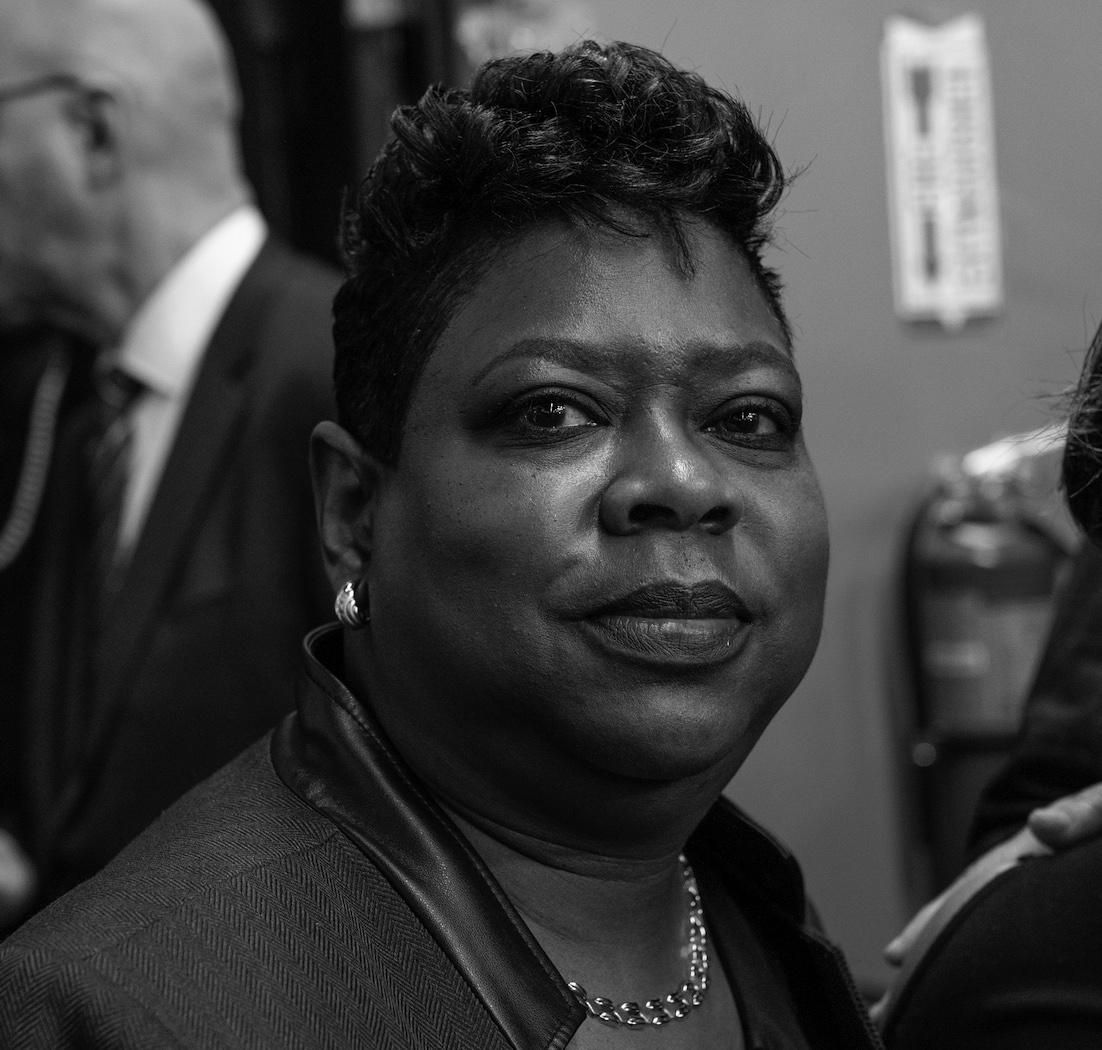
- Being a young Black kid growing up in public housing and going to public schools I knew I wanted to be a lawyer. I’m the first in my family to go to college. I had no idea how to have that done. I was a very good student and I had a guidance counselor who was supposed to help with college preparation tell me that I shouldn’t be a lawyer and that I should be a secretary. There’s always somebody that wants to steal your joy or bust up your dreams.
- I’m a very determined person. Every time somebody tells me that I can’t do something that’s why I have to do it and do it well. That’s guided me throughout my whole career.
- I went to college. I went to law school. I became an assistant district attorney, all the while keeping that in the back of my mind that I can get things done. And then I became a judge, sat on the bench for 15 years and stepped down to run for DA. I ran because I always was involved in public service. My family was always community-oriented. That’s all I knew.
- When I became DA, that was the ultimate job for me because I always wanted to impact the lives of people that I serve, and there’s no greater service than being district attorney of the Bronx.
- I’m a consensus builder. I’ve always possessed good leadership qualities because I had good mentors. And I use those skills from my judicial experience, my legal experience and my community experience to really forge good relationships with people. As much as it’s a white male-dominated world, they better look out because Black women are kicking down doors. We’re there. We’re a force to be reckoned with – in a good way. We’re determined. We have compassion and empathy that some white male leaders lack. We come from a different perspective. So therefore we do it differently.
- I’ve always had mentors. My teachers have been mentors (and) college professors. My legal mentor is a woman by the name of Teresa Mason who was an assistant DA in our office. She was the first female and first black person to serve as the sheriff of the city of New York. She was the chief of staff for the late Beau Biden. When I got elected she came back to my office and served under my first term as my chief of staff. She has always been somebody who really knows her way around politics and now she’s on the Biden transition team.
- I’m always involved in community work, speaking with young women and men, seniors, whoever wants to hear me. I’ve just been dedicated to community always. When I was a judge, I sat up there. I didn’t live up there. I’ve always lived in the Bronx community. I go to the same supermarkets, gas stations, laundromats. I worship with them. When people talk about the uptick in violence in our communities and they talk about they hear shots fired, well guess what? I’m the DA and I hear them too. So they know when they talk to me, they know that I have lived the experience they have.
- The worst piece of advice is always when somebody says, “You shouldn’t do that.” Or, “Wait your turn.” That’s a big one. People always saying, “Well it’s not your turn. Wait your turn.” No. We can’t wait. Work is too important. Our communities are suffering and we can’t wait for somebody else to determine who our leaders should be. We can’t have somebody else determine who does the work that’s needed. You’ve got to be ready to roll up your sleeves and go in and do the work and build the trust of the community so that they can help you get the work done.
- I push through things like (bias). If people want to present obstacles, I don’t know what their motive is, or why they’re doing it. I just know I’m determined to get results and get things done. And I’m going to do what I have to do to get those things done. Sometimes it doesn’t come in the time that I want, but it’s not about me. I’m a woman of faith and it’s what God wants me to do.
Yvette D. Clarke, Member of Congress
- One of the biggest obstacles I’ve faced was the pressure associated with being the daughter of a sitting politician when I first ran for office. … It was a double-edged sword. I was blessed due to the exposure I had through the work that I had done with my mother in support of her base. However, the challenge I faced was expanding upon that base and establishing leadership in my own right and raising the funds to amplify my message. The obstacle being the countering of false narratives and disparaging rumors from my adversaries of nepotism in politics, while projecting my own record of public service.
- As a young politician, one of the obstacles we all face is raising money and knitting together a financial base of support.
- Creating white male relationships was never something that was foreign to me. I come from one of the most diverse districts in America and have interacted with folks from all walks of life. It’s about finding common cause and working together to find common ground.
- The best piece of advice I’ve received is to be courageous, committed and focused on service to community. The lesson was to take everything I’ve learned and gained and apply it back to the community, which I strive to do every day in Congress.
- To be honest I’ve not considered the worst piece of advice I’ve received to be memorable. I truly can't recall bad advice. I view advice as a suggestion and not an imperative. I consider every side of an argument and take from that advice what works for my circumstances, fully embracing the consequences of my decisions, good and bad.
- For Black women, bias manifests itself in many different forms. We experience both racial bias and gender bias. The bias I’ve experienced is that of lowered expectations based upon racial and gender stereotypes. However, this cynicism has served as motivation for me to work harder, surpassing all expectations.
- Bias has not impacted my success because achieving my success is something I work on each and every day. I don’t let negativity and discrimination impact my goals and factor into what defines my success. It’s essentially “the X factor” in a racist society and speaks more about the insecurities of those who would attempt to weaponize it than it does about me.
- Living through a global pandemic has definitely challenged the way I do business. This year, I was running for reelection and I had to find new ways of supporting my community since we couldn’t be together in person. All the while doing everything in my power to navigate my constituents through this extremely traumatic and trying time, both in Washington, D.C. and here in Brooklyn. It called for a swift and complete reorganization of my office both officially and on the political side.
- My goal is to guide the people of central and south Brooklyn through the pandemic and to make sure they don’t become casualties of it. In D.C., I am working as hard as I can to make sure our community has the infrastructure and relief it needs to be safe and secure during these difficult times.
Mylan L. Denerstein, Partner, Gibson, Dunn & Crutcher
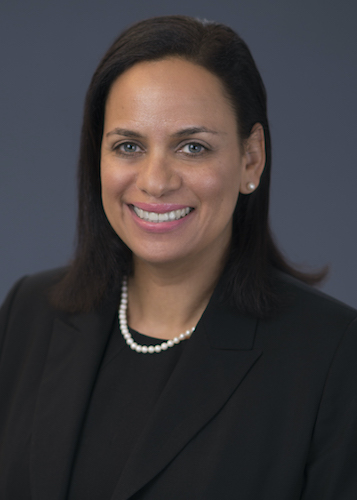
- My identity as a Black woman working in environments where people who looked like me were (and continue to be) underrepresented inherently meant having to break down barriers like (un)conscious bias and impostor syndrome, among other obstacles. And these challenges were often exacerbated by the fact that I was the first African American female attorney in my family – I had so much to learn because everything was new, and this was particularly challenging early on in my career as I was still climbing the ranks. I was able to navigate these obstacles by asking a lot of questions and always requesting constructive feedback.
- I strongly believe in the importance of mentorship, particularly early on in your career. And mentorship is especially imperative for those coming from underrepresented backgrounds as you may not have the built-in network of support and necessary guidance in navigating nuances in the workplace. I have been fortunate to have several mentors who have guided me along the way and helped me to obtain new challenging opportunities. As a result, I try to mentor young lawyers all the time. I enjoy sharing my experiences and hope my insights can be a learning tool for others. As a side note, I also want to highlight the importance of sponsorship – sponsors are the resources who will champion your career advancement as they can help create opportunities for you to grow and reach that next step in your journey.
- I think we all experience bias, but as a woman of color operating in the world of government, politics and the law, the biases can often be more pronounced. Whether it’s fighting the inherent biases in the hiring process, having to work twice as hard for a fair evaluation in the review process, or balancing work demands with family obligations, women – and in particular, women of color – are still sadly having to overcome these obstacles each and every day regardless of industry or profession. This is why it is crucial for institutions, and each of us, to consistently work at mitigating potential biases on both a structural level and in all of our daily interactions.
- When I have experienced bias of any type, I find that it is exhausting and demoralizing, but we have to keep going because we want to make the world a better place. I – and countless others in my generation – have worked tirelessly not only to break down these types of barriers, but more importantly, to open additional opportunities for the next generation.
- Against the backdrop of a global pandemic, recent events have brought racial, social and economic disparities in our society to the forefront, and have served as a reminder of my purpose – of why I’m doing what I’m doing. As lawyers, we work to obtain the best outcome for our clients. And as public servants, we work to find the best solutions for our constituencies. So as a Black woman in America, I’m constantly working toward a more equitable and inclusive world for future generations, just like my ancestors did for me.
- Don’t be afraid to try new things. This old adage rings true: “You’ll never know what you are capable of until you put yourself out there.” Surround yourself with colleagues who are smarter than you; they will make you better. You can only be your best when you are surrounded by the best. Mentors do not have to have the same background as you – oftentimes, your mentor will not look like you or have the same experiences, so don’t limit your search in seeking mentors simply out of fear that you may not have anything in common. These differences will likely add value to a mentoring relationship. Don’t be afraid to ask for help – everyone needs help – and put your ego/fears aside in order to learn and grow. Take credit for your work – be a team player, but it’s equally important to take (and give) credit where it’s due.
Inez E. Dickens, New York State Assembly Member
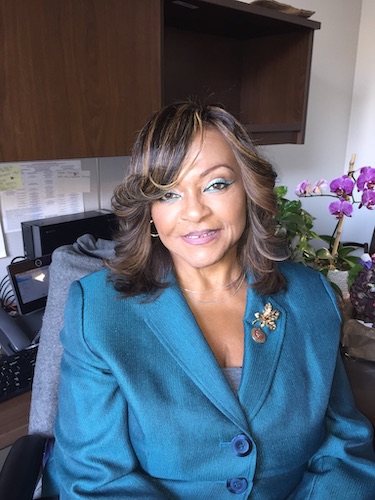
- The world of politics has historically been in the hands of white men. In Harlem, it has been in the hands of Black men. A woman had to be brought to the table by a male mentor in order to even be considered to run for public office. Although I must admit that in, I believe, 1953, Harlem elected New York state’s first Black woman to the Assembly: Bessie Buchanan. In 2005, when I initially ran for city council, the pendulum was trying to swing, as I believe the council had 17 women elected out of 50 members and subsequently we elected Chris Quinn as the first speaker. But had it not been for the “Gang of Four” as well as other Harlem stakeholders, I would not stand before you today as an elected. In my final Council term, I was the only Black woman holding public office from Manhattan in the Council. Today, we elected the first woman of color as the vice president of our great country. Yet, also today, I stand here as the only Black (not woman of color) woman holding public office from the great borough of Manhattan.
- Women are more able to negotiate with men/women regardless of color and across the political aisle on all three levels of government. Women tend to present an argument based upon what is more in common and what can be changed rather than based only on relationships. I have been blessed to have been able to bring unprecedented resources to my district and to the city over the years by recognizing that although I cannot be everything to everyone, I can instead protect and enhance the bigger picture to benefit all and not only a few. Women think out of the box, globally, to the future – why not rather than why.
- (My mentors include) my father, the late Assembly Member Lloyd E. Dickens and his eight brothers and one sister. My sister De and I were taught from birth that in order for the Black in America to succeed, there had to be unity amongst us. With unity, political, economic, civic and social empowerment would be achieved. With the diversity that has come to Harlem, I have maintained that belief throughout my life on all levels and it has been successful.
- I have mentored since I first was elected in 2005. Back then I pulled up several that I hoped would be able to successfully take up the mantle: Larry Scott Blackmon, Brian Benjamin, and a young woman from my club, Youseline Obe. Today, I’m working with Leilani Irvin, Ashley Sharpton and Rev. Reginald Bachus. There have been many over the years but you must have the “fire in the belly,” the desire to represent without much remuneration without seeking limelight. I realize it is difficult for many young people after being forced to get a loan to attend college, pay it back, viably survive and yet for trying to do your best, your life is on public display. Many do not want to deal with this. Being called “Honorable” sounds great and getting invited to meetings with notables makes for good photos and press, but the road is hard and difficult and often lonely work if you do it right.
- Over the years I have received much advice but probably the best advice that I received that altered the way I was shaping my first political office was at a St. Nicholas NYCHA TA meeting where I was bragging that I had hired a young woman from Grant Houses and another from right there from St. Nicholas and yet a third young person all right out of high school. An elder woman got up and said, “Congratulations on your election and on hiring all these young people from the community. You’ve never held office before and you don’t know where the bathroom is and the three you just hired can only roam around the building with you, looking. Now tomorrow you should go down to City Hall and find somebody who has worked there for years and come back and tell us you hired that person.” I didn’t understand, so I asked what she meant. The elder responded, “When I come to your office I want someone who knows something to help me. Right now none of you know a damned thing.” True story.
- I went to a fundraiser to support a candidate for Assembly and a woman attendee walked up to me and said she had moved into this building and that she was tired of the local drug activity and crime on this block and what was I going to do about it. She continued, not allowing a response from me: “After all, they don’t even know what fork to eat with. I don’t mean you of course because you are an elected, but them.”
- Bias is inbred in our country and obviously I – as have most, if not all, minorities including women, the LGBTQ+ communities and the physically/mentally challenged – have been faced with bias. But rather than have it impact my success, it rather made me stronger.
- 2020 has changed goals for many people including myself. Today I’m focused on what I can do to assist a community ravaged by this pandemic, almost day to day. Once elected, I did not think about what my next position was going to be but instead I focused on doing the very best I could in the position my community asked me to do. Since March my staff and I focused on assisting the thousands of persons suddenly left without employment. My office did not have a direct link to the Department of Labor but we tried desperately to assist the more than 16,000 texts/emails/letters/phone requests we received. I focused on trying to assist the micro small businesses get grants and low interest loans or PPE funds in order to stay afloat. My goals had changed from looking ahead to seeing what resources I could secure for my community’s first responders, elders, families, youth, health, education remotely, food shortages, unemployment and so such more. My goals had become where to get water, sanitizers, food, masks and how to get family members buried. However, I am but human so it is only natural that as a term draws to an end that I might begin to think about my and my community’s future particularly in today’s adverse economic state.
Hazel N. Dukes, President, NAACP New York State Conference
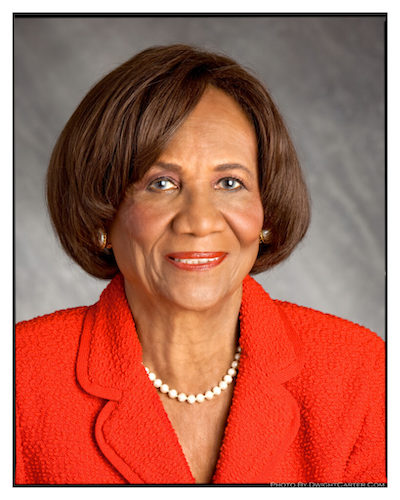
- I’m the luckiest person in the world. My political journey has been with some of the greatest giants, including my mentor and confidant Basil A. Paterson, Percy Sutton, Charlie Rangel, William “Bill” Lynch and Archie Spigner.
- I am mentoring several young men and women, including Roslyn Brock, Brian Benjamin, Tamika Mallory, Geoffrey Eaton, Karen Boykin-Towns, Karen Blanding and the list goes on.
Leecia Eve, Vice President, Public Policy, Verizon
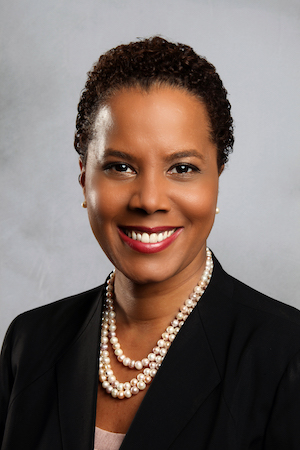
- (I was) being underestimated by some because of my race, gender and age although as a young litigator I used being underestimated to great advantage in serving my clients.
- As (I have navigated politics) the same as I do in any other relationship with women and men of a variety of races, ethnicities and experiences.
- I view myself as young in spirit but I've now been working as a professional for more than three decades, as a lawyer in private practice and in public service (including 25 years ago for our now president-elect!) as well as at the senior level of a Fortune 20 company that creates and builds communication networks that help move our communities and the world forward.
- But what's most significant … is that I am the proud daughter of the two most extraordinary people and public servants I will ever know: my father, former New York state Assembly Deputy Speaker Arthur O. Eve and my mother, Lee Constance Eve, who was the first African American to become tenured at Erie Community College decades ago (she taught English at ECC) and who, in her retirement, founded what became the largest and most comprehensive alternative to incarceration for women in our state's history.
- What I witnessed as a child growing up watching my parents was not simply the importance, but in fact the criticality of integrity, extraordinary dedication and unwavering commitment to whatever goal you are seeking to achieve, unmatched knowledge and preparation (knowledge is indeed power) and treating people with respect even if you disagree with them.
- Even in elementary school, I paid attention to my father's leadership in education, social justice, health care, economic development and economic opportunity for everyone. He had many battles in the Legislature and with governors and he won pretty much all of them, benefiting New Yorkers not just in his district but across the state. I still remember during one of the epic battles my father saying to me: “Everyone may not like me but they respect me because they know who I am, what I believe, what I am fighting for and why I am fighting for it.” And he was organized and sought to educate, organize and empower thousands in his district and across the state to make sure their voices were heard in Albany. That was a potent combination that, time and time again, led to hard-fought collective success. What my father said to me decades ago was a powerful lesson then and it is just as powerful – and even more pertinent – today.
- These are among the many lessons that were instilled in me at a very young age and it’s how I try to conduct myself and engage with every person and in every environment.
- Beyond my parents I am very blessed to have a number of mentors, though they are really friends whom I respect a great deal and trust.
- I am not in a formal mentor relationship and I've never been a mentee to someone with whom I engaged regularly, but on a regular basis I give guidance – sometimes solicited and sometimes not (but out of love!) – to people that I have come to know and who seek my advice.
- I do believe that integrity is everything. We all make mistakes – and sometimes big ones. That happens. It's how you own up to those mistakes and deal with them that I believe is important in the aftermath of making a mistake. But you've got to always work hard to maintain your integrity because once you lose it or it takes a big hit, it can be a long road to get it back.
- (My goals for the future are) to continue to use my skills, education, knowledge and professional and personal experiences to help transform communities and society and to become healthier (exercising more and incorporating meditation) to increase the chances that I will be able to serve and lead for many years to come.
C. Virginia Fields, Founder and President, National Black Leadership Commission on Health and Former Manhattan Borough President
- (I experienced bias as a woman of color) far too many times to enumerate. Having been born in the segregated south of Birmingham, Alabama, and growing up there during the ’50s and ’60s, experiencing bias and discrimination was a way of life. In my personal, professional and political life bias has been experienced from the denial of renting apartments, rejection of employment for which I was duly qualified, and the lack of recognition/respect accorded to white colleagues serving in the same political positions as city council members and borough presidents.
- My first run for elected office was in 1989 for City Council against an incumbent. I had less name recognition, a lack of funding and few resources for raising money, a limited relationship with labor and entities that traditionally support candidates and little support from elected leaders. The only elected leader who provided public support (an endorsement) was Andrew Stein. Running against an incumbent was discouraged. In my professional career, after graduating from Indiana University Graduate School of Social Work, I lacked the opportunity to secure meaningful positions in comparison to my white counterparts.
- (I navigate the world of politics by) maintaining working relationships with white men in elected and appointed offices to educate and advocate for policies and budgets needed to advance my work in eliminating health disparities and promoting health equity among Black populations. This occurs on city, state and federal levels. I also work to achieve changes on local matters in the community and with civic organizations with which I am affiliated. I recognize the value of maintaining such working relationships.
- I have been greatly inspired and influenced by women who served in elected office such as Shirley Chisholm, Barbara Jordan; and leaders in the civil rights movement such as Dorothy Heights.
- I am mentoring several Black women who have leadership potential for seeking elected office or other positions of influence – especially in the public arena. I am helping to build a needed pipeline. Using my experience I am helping them build supportive networks through their current positions; guiding them to think more strategically about political engagement; and encouraging active involvement in community and civic endeavors.
- (I was advised:) “It is not your time to run for public office,” which was to suggest there was an unspoken rule of thumb that you are to get in line. I had only lived in Harlem for 10 years when I first ran for office, so to wait my turn would have placed me in a long line and stunted my political growth. I rejected the advice and that was not well received by party leaders.
- (My future goals are) to prepare and support future generations of Black women for leadership positions in the public and nonprofit sectors. To promote voter education and civic engagement. To educate and create greater awareness among the Black population about matters of health disparities and work for health equity. COVID-19 has unveiled what has been known for years, based on the data, and my goal is to keep such disparities in the forefront to help bring about needed changes.
Kia D. Floyd, Head of Public Policy and Community Engagement, Facebook
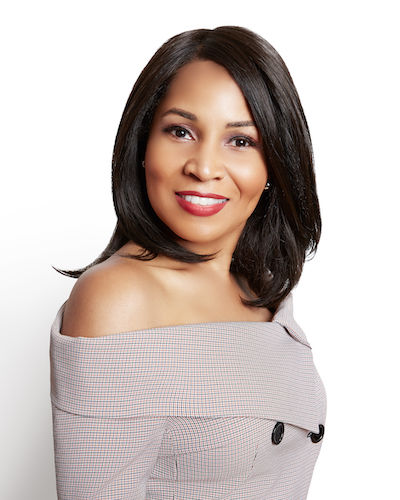
- Each new career step has challenged my understanding of executive leadership styles and the value of diversity and inclusion in the workplace. While in government, I led a large, diverse team and learned from a diverse set of executives – women, Black, Latinx and LGBTQ+. Diversity was not a forced concept, it was simply woven into the fabric of our workforce and leadership, making role modeling organic. However, government leaders tend to be more autocratic. Therefore, many managers function as overseers of transactions, employees maintain desired performance levels, and in exchange they receive salary and benefits. Generally, these managers are positional leaders – they derive authority simply from the fact that they are the boss. That management style sometimes stifled my creativity and innovation as a young lawyer seeking to make high impact in legacy government institutions.
- In the private sector, I’ve had the inverse situation. I’ve found that diversity and inclusion must be more deliberate to provide access, opportunity and equity to all. Encouraging leaders with unearned privilege to share it with others is at times painful, but it is critical to move business and our country forward. However, when it comes to executive leadership, I’ve been privileged to work in entrepreneurial environments where assertive risk-taking and innovation was encouraged. I thrive under servant leadership. Servant leaders are revolutionary: they upend the traditional power leadership model by driving a serve-first mindset, focused on empowering and uplifting those who work for them. They serve instead of command, show humility instead of brandishing authority, and look to enhance the development of their teams in ways that unlock potential, creativity and sense of purpose. Whether in the private or public sectors, navigating the challenges of diversity, inclusion and organizational leadership have both been consistent themes for me.
- I’ve been in government relations for more than 15 years, so navigating the power structure of politics is not new. My job is to understand the dynamics of government systems and politics to ensure that public policy outcomes are fair and balanced for the organizations and industries I represent. However, ensuring that U.S. public policy considers and serves all people fairly is the toughest challenge today.
- Government leaders in the U.S. are among the oldest and the most homogeneous. In many of the world’s longest-lasting democracies and most advanced economies, the age of elected leaders is falling, not rising. Despite being less than one-third of the population, white men hold a majority of elected positions, so the field of government relations reflects that reality. With Vice President-elect Kamala Harris taking office next year, I hope that she, like President Obama before her, will spark a renewed passion for public service among younger citizens, women and people of color to be the change they’d like to see in politics. When that happens, the field of government relations should also become more diverse and inclusive. I’m delighted to sit in the front row for that.
- I do have a mentor and I mentor others. For me, formal mentorship was elusive for much of my career, as I have always been self-reliant and a go-getter. Consequently, I may not have always outwardly appeared to need mentorship. As a student of corporate business leaders and startup founders, I know that mentorship and sponsorship were the keys to their successes. I am now being formally mentored by a global executive at my company and I've embraced it with open arms. As one of the leading executives of color in the technology industry, my mentor has been a terrific role model and demonstrates the impact of lifting others up as you climb. Through him I now see that it is lonely at the top without a strong network of allies to sponsor, champion and support you. While mentorship for me came later in my career, I'm immensely grateful to have it now.
- (The worst piece of advice I ever got was) choose stability over passion. It is hands down the worst advice for someone who is in an uninspiring job or career. I’d like to reframe it as “take a calculated risk and believe in yourself more than circumstances.”
- Listen more than you speak. It’s something that I find challenging at times but when consistently practiced it is golden advice.
- There is an inherent bias in male dominated fields that women are there to support leaders, but not to lead directly. That pushes a lot of women to the sidelines of the game when we are actually MVPs and game changers.
- One of the things I admire most about Vice President-elect Kamala Harris is her persistence and ambition. Her mantra “I eat ‘no’ for breakfast” is a personal favorite of mine. I’ve consistently been told “no” in my career and it sometimes fueled my ambition. Often, I’ve had to take creative routes and lateral moves to my destination, as traditional power and leadership structures don't encourage ambitious women.
- For many of us fortunate enough to retain employment this year, the pandemic has blurred the boundaries between work-life balance. Consequently, I am now more focused on ruthless prioritizing to ensure that I, as my own greatest asset and limited resource, have the energy and reserves to manage my responsibilities. I am hyper focused on quality over quantity in life and I’ve made self-care a top priority.
- I am spending as much time as possible this year on professional development to ensure that I keep pace with the changing demands of my field. I am a student of life so learning is rewarding for me.
Mara Gay, Member of the New York Times Editorial Board
- (The obstacles I faced at the start of my career were) sexism, racism and the 2008 financial crisis.
- I used to think I needed an invitation to sit at the table. But this democracy belongs to all of us. It isn’t the invitation of white men – or anyone else – to give.
- You have to take risks.
- (The worst advice I received was) to settle for jobs that weren’t right for me, even though they were hard to turn down when times were tough.
- (As for how bias has impacted my career), I can’t waste energy thinking about that. We have a city and country to rebuild.
- I’ve been recovering from COVID-19 since April 17. It’s been a marathon, and the biggest battle of my life. But I’m getting better all the time, thank God. It’s made me more passionate than ever about building a movement that empowers Black and brown people, vulnerable people, and all Americans to remake our democracy. I’m still healing but I’m also stronger. I’m a survivor.
Vanessa Gibson, New York City Council Member and Candidate for Bronx Borough President
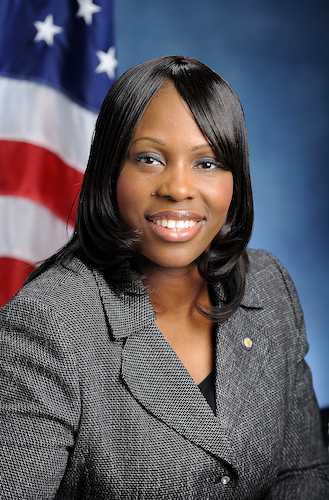
- I began my career in public service as an intern in the New York state Assembly internship program when I was a college senior and I ended up working for the Hon. Aurelia Greene, who was a long time assemblywoman from the Bronx. She became my second mother and mentor. The internship for me opened so many doors into the public sector, and I ultimately would become an assemblywoman in 2009.
- The first thing you encounter as a Black woman elected official is the challenge of being in a body of government that is predominantly led by white men. That has been historic. For me, it was a challenge to navigate the state Legislature, to understand how to be an elected official. It was on-the-job training. There’s no manual for this type of work. A lot of it you have to learn by building relationships and networking with others, with other senior elected officials who can help you.
- Being an elected official, obviously, is making sure you have a footprint so you can be recognized for the work you’re doing. It’s very difficult to raise money as a candidate running for office. Women just historically have trouble raising money, and that’s always been an issue.
- You have to make sure your voice is heard, because you are an elected official that represents a diverse district and you have to recognize that you represent people from all backgrounds, all nationalities and all cultures. And so the goal is to formulate positions and put together your vision and your plan with a purpose of serving everybody regardless of where they come from.
- Women face a lot of obstacles working in male-dominated industries and always being around men and many times being the only women of color. That’s why you have to be a voice for so many women that should be at the table who are often not at the table with you.
- As an African American elected official, it is really inspiring at this time seeing so many women of color running for office. History tells us that a lot of these positions that we are running for have never been ordained and designed for us. But once we’ve seen so many women like our incoming Vice President Kamala Harris making her story in 2020, it gives every little girl – Black, Latina, Asian, Native American – every young girl of color hope that they can see leaders in themselves, that look just like themselves.
- I hope our stories and messages of strength and survival, all of the challenges that we have endured, have created a pathway that will be easier for the next generation.
Tyquana Henderson-Rivers, President, Connective Strategies
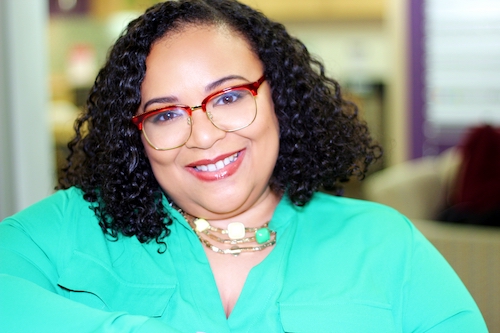
- I stopped allowing others to define me, put me in a box and then take credit for my work. I started my own business 12 years ago and I haven't looked back.
- I have several mentors. Some older, some younger. I firmly believe that no matter how old you get, you are still teachable. It is especially important to me to not only teach and motivate the next generation, but to also learn from them. I mentor several young women throughout the year in my office and am open to teach anyone that wants to learn.
- COVID-19 caused me to reevaluate my priorities and refine my purpose. My life goal was to do more than make money; it was to make change. I want to spend my energy working with people that want to offer positive change for people that look like me with similar backgrounds.
Jennifer Jones Austin, CEO, FPWA; Chair, New York City Board of Correction
[[{"fid":"13189","view_mode":"default","fields":{"format":"default","field_file_image_alt_text[und][0][value]":"Jennifer Jones Austin","field_file_image_title_text[und][0][value]":"Jennifer Jones Austin"},"type":"media","field_deltas":{"40":{"format":"default","field_file_image_alt_text[und][0][value]":"Jennifer Jones Austin","field_file_image_title_text[und][0][value]":"Jennifer Jones Austin"}},"attributes":{"alt":"Jennifer Jones Austin","title":"Jennifer Jones Austin","style":"height: 599px; width: 400px;","class":"media-element file-default","data-delta":"40"}}]]
- Throughout my career some white men with power have attempted to minimize, and even silence, my voice. Having been raised by a prominent Black man who was in full command of his power and who taught his daughters to own their voice and power, and by a Black woman who defied dominating men – white and Black – I’ve sometimes wondered if white men have been perplexed by me and my audacity to believe my voice matters as much as theirs. My ever-maturing approach to navigating these sometimes turbulent waters is to first stay true to my voice, then deal head on with issues, expressing emotions only inasmuch as they are tied to the issues themselves – and seek and achieve common ground wherever possible.
- As a deputy commissioner in a city agency I was told by the commissioner to not ask questions and seek clarification on key issues and decisions, but rather just do as I was told. Couldn’t do it. Won’t do it. Asking questions and seeking clarification is constructive and ensures mutual understanding, which is especially critical when working on matters affecting the safety and well-being of thousands of people.
- The refueled and reinvigorated racial crisis in America has provided yet another platform for my work to dismantle poverty-perpetuating policies and practices. Poverty, race, gender and justice involvement have been inextricably linked in our society for 400-plus years, but it hasn’t always been political or strategic to speak directly and unapologetically to these intersectionalities when advocating for changes in law and policy, and funding. With race matters on the minds of many, my organization is seizing the moment and audaciously confronting and engaging in solutions-building with the numerous sectors that have long contributed to racism and bias in every pillar of our society.
- I have long experienced and continue to experience bias as a woman of color from white men, white women, and even from Black men and Black women. For example, I’ve had white staff who reported to me openly express surprise about my analytical, strategic and problem-solving skills. I’ve had Black men who reported to me challenge and defy my decisions. And I’ve had Black female staff actually follow the desires of men who also reported to me, all the while ignoring my directives.
- More than 20 years ago when working a full-time, demanding position in city government, I was asked by the agency leader to assume a second role, to actually perform full-time two challenging roles with no diminution in responsibility and with no additional pay. I hesitated and was ready to reject the offer of the second role because I wasn’t being paid my worth, especially after the agency leader expressly stated that he couldn’t even give me a standard 8% increase because he needed to keep the nearly $100,000 he would be saving to give raises to others. I confided in one of my advisers who strongly suggested I take on the additional title and responsibilities because even if I wasn’t getting paid, the experience would be rewarded in the long run. I did, and less than six months later I landed outside of the agency a bigger role and title with a significantly greater salary and benefits.
- Early in my career, I earned a seat at the decision-making table, but I quickly learned that the seat didn’t always come with a voice that would be heard and listened to. There were several occasions when, as a senior leader in government, my thoughts and opinions were ignored, and decisions debated after the fact.
Camille Joseph-Goldman, Group Vice President, Government Affairs, Charter Communications
- I believe that every “obstacle” is an opportunity for personal growth and development. Upon reflection, events that appeared to be challenging afforded me tremendous opportunities to develop the skills and relationships necessary to navigate a successful professional path, both in politics and in the private sector.
- I am proud to be a part of a very diverse family, comprised of loved ones with different backgrounds. As such, I have learned that in every relationship, it's often best to focus on getting to know each person as an individual while encouraging others to understand why intellectual and demographic diversity is integral to any successful political or business environment. In my current role, my goal is to help connect our customers to innovation and technology. This is best accomplished by building meaningful relationships with people from all backgrounds while illustrating the unique value I bring to the table.
- There are several people within my company and community who have served as great mentors to me. I am very grateful for their guidance and insistence that in order to rise, you must always lift others. Due to this, I also enjoy being a mentor to several people whom I believe are rising stars and remain grateful for the opportunity to be of service to others.
- My parents have always encouraged me to think deeply and broadly about how I can deliver value for my team and organization. This means that it is important to master the intricacies of one's role while making connections to the overall metrics of success for your organization.
- Over the course of one's lifetime, a person will receive advice from many people. In all things, it is important to make decisions based on your core values. By utilizing my core values as a compass, I am able to make decisions that align with my personal values and long-term goals no matter the advice I receive.
- I have often found it difficult to discern whether notable bias is a response to my race, age, gender or a combination of all three. However, I don't think about my potential and value based on how others view me. I think about my value in terms of how I can best use my skills to benefit my community and make a genuine difference in the world.
- Any bias that I have encountered has done more to inform my work ethic and reinforce the importance of my mission than deter my success. As I continue to work faithfully and consistently towards my goals, I refuse to allow occasional attempts to thwart those efforts hinder my success. Perseverance is a discipline and I remain committed to the work it entails.
- I believe in the value of self-care, so when I can, I try to meditate and find time for long walks. I also enjoy spending quality time with my family which keeps me centered and affirms my purpose.
Farah N. Louis, New York City Council Member
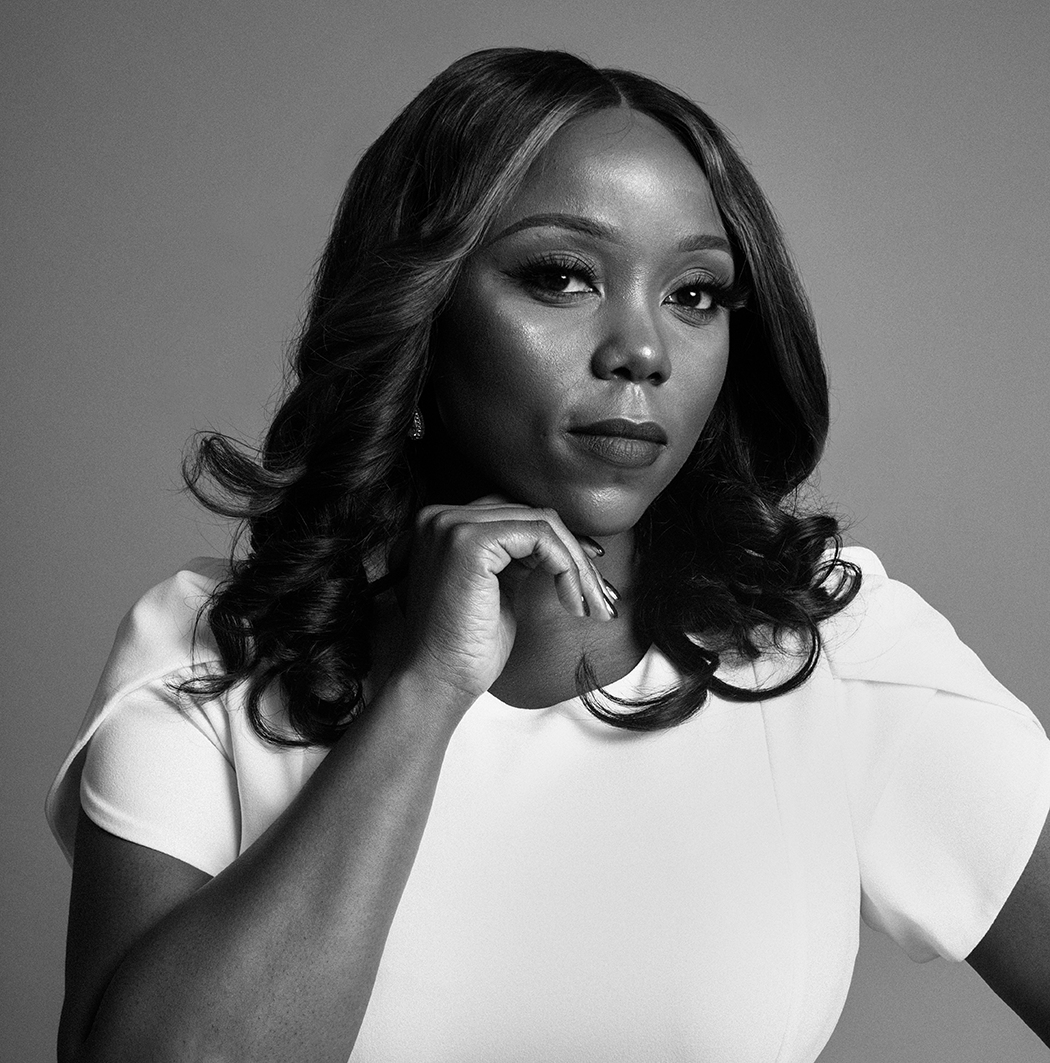
- My career in politics began after I organized a protest demanding the termination of a Hot 97 DJ who made disparaging comments about Haitian women. One year before the special election, President Donald Trump referred to Haiti and parts of Africa as “shithole countries.” Sadly, I encountered similar experiences as a candidate for the New York City Council. My cultural identity rather than my previous council experience became the central focus of the race for District 45 in Brooklyn. I overwhelmingly won the special, primary and general elections to become the first woman to fill this seat. Throughout my campaign and first year in office, I worked to reunify our district by embracing and celebrating our cultural diversity. From local to national races, the gender gap in political ambition has been slow to close because of the sexism, misogyny, discrimination, racism and colorism that we encounter on the campaign trail and while serving in public office.
- As a freshman member, one of only a dozen women in the New York City Council, I had to adapt quickly because I was sworn into office in the middle of a legislative session. Although the world of politics is dominated by white men, as a Black woman I can still thrive by not accepting the status quo. I am learning how to identify opportunities to build partnerships and be vocal to address the racial and gender disparities that exist throughout our city. Together, we are introducing and passing legislation that will expand equity and justice for all.
- I have two mentors, both spiritual and professional, whose past and present experiences have served as a roadmap for my own. Through open and honest conversations, I have gained valuable friendships, confidants and wise advisers who have been with me every step of the way. Representation matters! Women and girls, particularly in Black communities, are underrepresented in leadership. Without role models, many of us may never aspire to become more than what others expect us to become because of our circumstances. I recognize the importance of mentoring the next generation and continue to inspire young women in my community through open, honest conversations. I proudly invest my time and resources to help them overcome the obstacles and avoid the pitfalls that I encountered during my lifetime and career.
- I took my own advice. I had to rebrand myself and the path that I would take to reach my destination, without aborting the mission. You can reinvent yourself, without abandoning your passion.
- (The worst piece of advice I was ever given was that) rejection and failure is a sign that you are not good enough. I never accepted that advice and took every gut-wrenching “no.” I was told that I was too dark, did not belong or meet the criteria. Despite the hurt that I felt, I kept trying and eventually got an opportunity to arrive where I would succeed.
- In every industry that I have had the privilege to work in, I have experienced prejudice. As I transitioned from a career in media into government and politics, bias became more direct and aggressive. Black women experience microaggressions in the private sector, but it has become increasingly more evident in politics. As elected officials, women are heavily scrutinized because of our age, relationship status, physique and family life. We are less likely to receive the support and access that we need to advance both personally and professionally. I was told that I was not the right fit to accomplish anything if elected, but I was driven and determined to prove them wrong.
- Being a Black woman in politics comes with its share of challenges. Gender discrimination and bias in the workplace create challenges that are compounded by sexism, xenophobia, racism and other issues. All of these setbacks have diminished the number of opportunities that we are offered, hindered our career advancement and worsened the pay gap as well as led to the underrepresentation of women in leadership. Despite these challenges, I am an ambitious, tenacious and resilient Black woman who will not be deterred.
- I want to build a legacy of being a great leader in the city of New York that empowers women and marginalized people such as immigrant and Black communities – particularly our youth. We can accomplish this feat through STEM education, job readiness programs such as apprenticeships, internships as well as mentorship. During my first year in office, I have met with too many families devastated by gun violence. We must secure their future by providing positive alternatives to a life of crime or death. I am proud to be a proponent and leader in creating safe spaces for our youth and seniors. We will have the first-ever recreation center in East Flatbush named after the late, great and honorable Congresswoman Shirley Chisholm.
Stacy Lynch, Deputy Director, New York City Mayor's Office of Intergovernmental Affairs
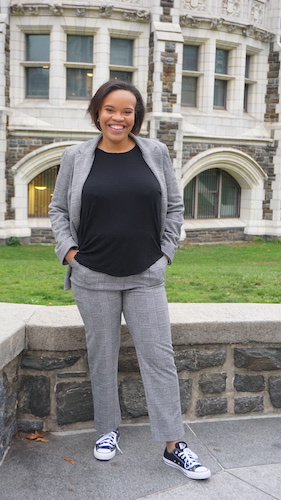
- I have sat in meetings where I was the lone African American woman and felt disempowered because of my gender and my race, treated with condescending acceptance but not valued for my ideas. I saw it, I felt it, but would not let it stop me from asserting my ideas into all levels of consideration where I thought it would be appropriate and helpful.
- I was raised in a family with two strong parents, not only my well-known father, Bill Lynch, but my mother, Mary, who taught in neighborhood schools for 30 years. I grew up surrounded by strong Black leaders – David Dinkins, Dorothy Height, Hazel Dukes, Marian Wright Edelman, Betty Shabazz, Charles Rangel, Percy Sutton, Basil Paterson, Al Sharpton, Harry Belafonte and many others. They taught me by word and example to stand on my own two feet and stake out my place in the world.
- I have been surrounded by mentors, whether in my family, at Hampton University, in law school, the law firm where I worked or in city government. I have benefited from their wisdom and example of leadership, which included the obligation to pay it forward which I have done in creating mentorship programs in the entertainment field, in working with the WNBA to create the city’s first all-girls basketball league or by preparing young people for summer youth opportunities. As part of the ethos of paying it forward that I was raised with, I organized the daughters and granddaughters of prominent Black leaders to create Daughters of the Movement, which works to support the next generation of leaders. We are not here to rest on the laurels of some of our city’s most progressive leaders, but to pick up the torch and carry it to new and greater heights.
- The pandemic has heightened the stakes in the work I do, making me more committed to tackle both the economic inequalities the pandemic has exposed even more starkly, and the movement confronting racial injustice and unequal policing sparked by the murder of George Floyd. The confluence of the three crises – health, economic and racial justice – has made our work even more demanding and compelling.
- (My goal for the future is) election to the City Council from the 7th District in Upper Manhattan.
Alexis McGill Johnson, President and CEO, Planned Parenthood Federation of America and the Planned Parenthood Action Fund
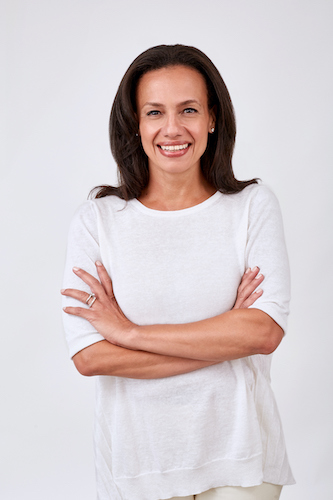
- I definitely experienced both benevolent sexism and benevolent racism. Essentially, instead of the hostile racism of “you can’t do X” or the sexism of “a woman can’t do X,” it looked like people saying things like, “why don’t I lead the way,” in a chivalrous way that makes you doubt yourself.
- I entered into the politics space through culture – largely through Black men. I immediately connected with other Black women, specifically (the thought leaders and political strategists) “the Colored Girls,” so I’ve always seen myself reflected, and I’ve always understood Black women to be leaders in the party.
- My mentor is Minyon Moore, and she taught me that service is power. She told me: The line for leadership is short, so step in.
- I mentor all brown girls. It’s important for me to redefine what leadership looks like for someone else. I make it a point to show up authentically, because when you do that, you create that permission for someone else.
- Once my mentor called me and basically said something along the lines of, “Hey, I know what you’re doing, don’t forget you’re an extension of me.” That taught me that when somebody invests in you, you represent them.
- I’ve also learned that in service, particularly in government or nonprofits, you can’t be in it for yourself – you’ve got to be guided by prophetic witness. I think having been mentored by a cohort of women who were mentored by Jesse Jackson had a huge impact.
- A couple of years ago when I was working at Perception, we signed a client, and they weren’t really in it for the right reasons. I was really struggling with how to deliver the right kind of product for them. And somebody said: “Just take the check.” That terrible advice actually clicked because it was so inconsistent with anything I would have ever said to anyone that it freed me to do the opposite, and realize that I had the power to actually quit my client, which was kind of liberating. The thing I most value about all my work is that I’ve come to it with curiosity and, for the most part, a level of personal freedom to do the work. I’ve had to work with stakeholders, but nobody owned me.
- (I experience bias) all day, every day. And it’s not explicit – no one has ever told me, “You’re not smart enough.” They’d say: “Wow! You went to Princeton and Yale, you must be smart!” There’s an uptick in the voice – an unasked question there. When I was board chair, someone once said: “I hear you ask really good questions.” So I think I’ve definitely been underestimated.
- There’s a price to bias. There have been great studies done that show how bias exponentially impacts you, starting from negotiating salaries, and how it plays out over a career. That’s what makes it systemic. And it shows up in both the explicit and the informal – access to relationships, to capital, the things you need to overcome in order to even do the work.
- (My future goals): Thinking about legacy, I know that to be a strong leader, you can’t just be a face. If you want to radically transform an institution, you have to understand its foundation. I want to keep learning from the talent we have, never missing an opportunity to remain a student.
- I also think it all comes back to the mission – over the next 10 years, I’m focused on advancing Planned Parenthood’s vision of health care and advocacy from now to 2030, to center our patients and bring us closer to a future where all our bodies are our own.
Celeste Morris, President, MorrisAllsop Public Affairs
- Bias has for me has resulted in less opportunity, less money, closed doors, and a glass ceiling. The same as white women only greater because of me being a Black woman. I, and the great majority of Black women, lack family or professional connections, inherited wealth and property, or husbands, fathers or brothers in high places. Unequal pay or compensation, higher bars in place to judge our competence – they all play a role.
- I will continue to pursue opportunities to train entrepreneurs, perhaps in other places in the world. I intend to be even more impactful in projects and organizations that support Black women. Along with other family members, I will be investing in property so that my children and grandchildren will experience the benefits of wealth and property passed on to the next generation.
- I am now at the late stages of my career and business where I can choose the work I do. I have worked with a diverse list of politicians and professionals. However, the historical reality is that despite talent, experience and acumen, I, as a Black woman, have never been chosen to lead a major campaign outside of local elections. I have worked on some major campaigns, but have most often been pigeon-holed into leading "Black" constituency efforts which are accompanied by lesser pay. In addition, even though hired for that, often recommendations were dismissed or diminished. Having my own firm has allowed me to operate outside of the day-to-day oppressive bubble that must be endured in the workplace.
- When I achieved my college degree, I was fortunate enough to have been mentored by several people who were willing to open doors for me. I was always willing to work hard and was committed to working in the community. Working for nonprofit organizations always paid less than government or corporate jobs. My greatest experience with obstacles occurred mid-career in government agencies with bosses who seemed to resent any recognition I received outside of their department. Visible efforts were made to diminish my work product and negatively influence perceptions of executives of the agencies.
Rachel Noerdlinger, Media Strategist and Managing Director, Mercury
- The narrative is shifting before our eyes as we now have a vice president-elect who is Black and South Asian, and many women of color are rising in political positions nationwide. I’ve dealt with this my entire career by being competitive and finding a way to not just be in the room, but by finding a seat at the table. It has often required me to see things through a bipartisan lens to assess where I can meet people halfway. It has also required me to be vocal. A closed mouth doesn’t get fed.
- My mentor Terrie M. Williams dedicated countless hours to helping groom my career and she refused to let me skate in tough times. She always said to me “stay strong and in the race” and she has navigated me through many career inflection points. I mentor several young women and men and participate in a mentorship program called Unlock Her Potential to provide mentorship to women of color in the U.S.
- Bias has impacted my success in the economic space at various points in my career, and it has been a constant fight to receive the same financial equity that my male political peers achieve.
- Worst piece of advice: To take a job inside the government knowing that I love the politics of the outside arena and being a community bridge to the political realm.
Kimberly Peeler-Allen, Co-Founder, Higher Heights for America
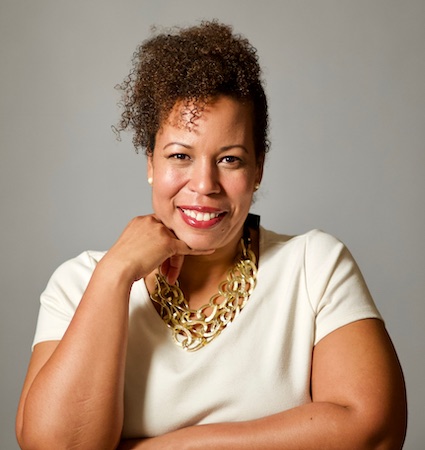
- I continue to challenge myself to find opportunities to amplify the voices of Black women in new spaces whether that is through board service, campaigns or other organizations. My mantra is: “Your comfort zone is a beautiful place but nothing ever grows there.”
- Because of the bias experienced by myself and other Black women, Glynda Carr and I knew we had to create a political home for Black women; where the voices, votes and leadership of Black women would be centered and uplifted. Founding Higher Heights and the success of our members all across the country is my greatest professional accomplishment.
- The voices and concerns of Black women have been my top priority for the last 10-plus years. Recent events have brought the concerns of Black women to center stage which has made me busier than I have ever been as I do my part to make sure that there is an actual paradigm shift and not just lip service paid to the 23 million Black women in America who are underrepresented and underserved.
- I remember being on campaigns where I would make a statement and it would be ignored but when the white consultant would say the exact same thing, it was treated as gospel. As a fundraiser there were a lot of assumptions about who I knew and who I was able to raise money from because I was Black. I had to disprove that assumption regularly.
- I believe that the road to true equity in this country is a long and challenging one and we cannot reach the end of it on our own. Black women and women of color must lead that march but need white men and others to spend their privilege to help smooth the path. However, Black women and women of color are used to going around, over and through obstacles on the road to equity. I would love to have as many people as possible as part of this journey but I won't be derailed if they aren't.
Crystal D. Peoples-Stokes, New York State Assembly Majority Leader
- The biggest obstacle I faced at the start of my career was self reflection. As an introvert who shies away from the spotlight, do I want to go door knocking, to multiple community events, debates, public speaking, not to mention fundraising? My desire to serve, to help people, helped me to push past my fears. Also, I was emboldened by the fact that the political establishment told me “no.”
- (On navigating white men who dominate politics:) Honestly, I just kill them with kindness. I treat them the way I expect to be treated and in return, I generally get treated fairly. That doesn't change the fact that I am unapologetically both an African American and a woman in a society that continuously challenges the fact that I am not male and not white.
- My mother Clara M. Davis is without question my mentor. She was the first and only one of 13 siblings of sharecroppers to attend college. When my parents married, she had an AS degree. When I graduated high school, my mom was graduating from UB with a MS in education. She literally completed her education while working multiple jobs, raising her children and taking care of our family. Upon becoming one of the first of three Black women Buffalo Police officers, that’s when my father finally said no.
- (On whether she experiences bias:) YES. Nearly every day. When you think about the fact that the presidential election is being counted as a fraud simply because Black people voted, absolutely yes. I experience bias every day in America.
- Racial and gender bias has followed me every day of my life, it still does. It may have slowed down a few things down, but it certainly didn’t stop me from building a successful career in the service of my people.
- I pray. I talk to God all day. ALL DAY. Self-care is critical. I also call on and draw from the spirit of my ancestors. If they could survive all they’ve endured, then whatever I face, I can and will survive too and that brings me peace.
Rose Pierre-Louis, Chief Operating Officer, NYU McSilver Institute for Poverty Policy and Research; Former Commissioner of Mayor’s Office to Combat Domestic Violence
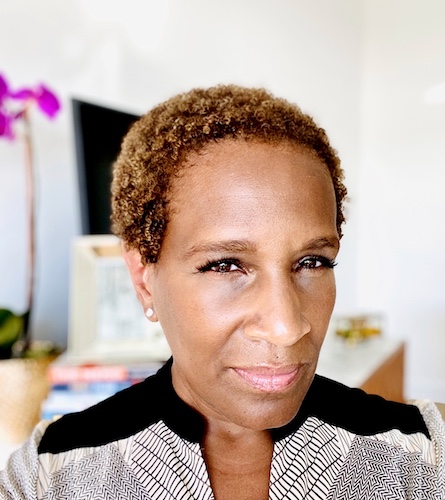
- I started my career when I was 22 years old and, certainly, I had to deal with the combination of being young, a woman and Black. Despite the fact that I was hard-working and always overly-prepared, I wasn’t always taken seriously. It made me work harder. It’s like that old adage that I heard growing up as a young Black girl, that you have to work two to three times harder to be seen as being just as good. As I started my career, I really began to see how that was going to be a factor.
- One of the things that an early mentor shared with me was the importance of having not only mentors, but having allies. There’s a book I love titled “The Little Black Book of Success: Laws of Leadership for Black Women,” and it also talks about the importance of that. Your allies don’t have to share your background. For me, allies have included white men and women, and having them has helped me to navigate those spaces successfully.
- This moment of racial reckoning has made me even more vocal to speak out about challenges that people of color and women of color face, and to collaborate to arrive at solutions. We need to have more seats at the tables of opportunity for people of color, and I know I have to be part of creating those opportunities, take time to mentor others and serve on the “kitchen cabinets” of others.
- As a result of the COVID-19 pandemic, I have paid even more attention to those who are underserved. My current role is chief operating officer at the NYU McSilver Institute for Poverty Policy and Research so, as always, I am very focused on improving the lives of those who are impacted by poverty, racial disparities and racial injustice, and specifically on how I can be a force for policy change.
- The best piece of advice I received from a mentor early on is to have your own “kitchen cabinet” of people who are really invested in you and care about your professional development and success, but are not afraid to tell you the truth. Those in my own kitchen cabinet have been sounding boards, and have been instrumental in every career decision I’ve made.
- I have definitely benefited from being mentored. Many of the positions that I’ve held in government were pursued with the encouragement and support of mentors. I mentor others as well, because I fully appreciate the importance of paying it forward and, as a woman of color, my responsibility is to open the door for others. My definition of empowerment is not about the seat I am sitting in now. It’s about the person who comes in behind me and how I can make it easier for them to get to that seat.
- It’s sad, but true that women of color are viewed by a different set of metrics in many industries, for how we interact with others and how we present ourselves. We are forced to constantly worry about how we will be perceived by others when we walk into a room. Even though you have the title or portfolio, there is still that hurdle to get over to be able to show your mettle and what you’re made of.
- Learning about the power of networking and how critical that is to career advancement has been job-altering, particularly since it’s something that I haven’t always embraced. I credit my mentors for that advice, and for helping me to think about bigger opportunities and not give into impostor syndrome, where you tell yourself that you’re not right for an opportunity when you are. As I’ve advanced through my career I’ve found that networking is a crucial part of finding out about leadership opportunities.
- I have dealt with bias as a woman of color in the political arena and as a “first,” (for instance, having been the first Haitian American to serve as a New York City commissioner). However, I have always made it my goal to demonstrate what I bring to the table, and it has pushed me even harder – not because I have something to prove – but because I’ve understood that the success is not just for me, but also for the principal I reported to, my agency, my team and the people we served.
- One thing I haven’t yet done is to run for office, and I have left myself open to that goal in the future, at the city or state level. I think about all the women who have so much to offer and because of impostor syndrome, they haven’t done so. It’s time for more Black women to step forward and get over our fear and just do it.
Hasoni Pratts, Founding Member and Treasurer, Higher Heights for America PAC
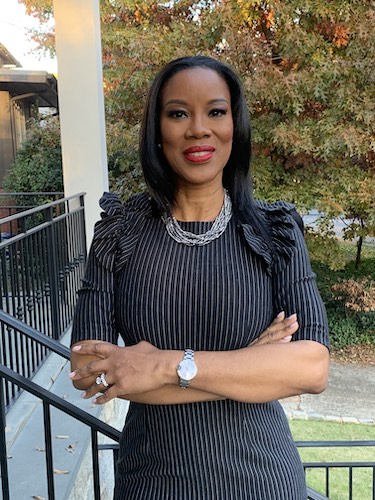
- (My mentors are) Hazel Dukes, Marcella Maxwell, Ruth Hassell-Thompson and my godmother Dr. Phyllis Harrison-Ross. In addition, I have peer colleagues that have been extremely supportive. All of these women have opened doors, been sounding boards and serve as cheerleaders in my personal and professional life. I have mentored and continue to mentor several women and a couple of men.
- I faced a very insider environment that seemed not welcoming to newcomers. It was Terence Tolbert who opened doors for me and made sure I was connected. I owe a lot to him.
Tiffany Raspberry, President, YorkGroup Associates
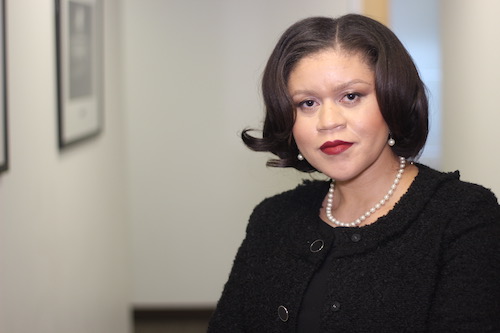
- At the beginning of my career in government, I felt pretty lucky. I was hired for my dream job during the spring semester of my senior year in college to work as a legislative aide for former U.S. Member of Congress Joseph Crowley on Capitol Hill. The beginning of my career in the field of lobbying was a little different. When I became a registered lobbyist and political consultant, there were so few women and barely any Black women in the industry, and I felt isolated. Additionally, I was constantly challenged to prove that I was capable and worthy of my position. My commitment to hard work, professional experiences and strong relationships never seemed good enough. I always felt that I had to jump through hoops and overcome unmeasurable obstacles in order to prove myself worthy to have a seat at the table and have my voice acknowledged and valued.
- (In response to a question about navigating relationships with the white men who still dominate the world of politics:) "I appreciate the spirit of this question, but I think that it is odd. It's like asking someone how they breathe when there isn't another option for survival – you just do. I manage my relationships with white men in the world of politics the same way that I manage all of my relationships. I've developed and established some really strong relationships and friendships with lots of individuals in the political industry throughout my career – many who are white men – and I lean on, leverage and work within those networks all the time.
- I had an amazing mentor who unfortunately passed away a few years ago. I learned so much from her about the field of politics and the dynamics of being a Black woman in the industry. She taught me the value of surrounding myself with not just one strong mentor but also a supportive village of individuals. So in her absence I've strengthened my village. I have mentored individuals in the past, and I always make myself available to anyone who requests my time, assistance or advice in the industry.
- When I decided to start my own consulting/lobbying business, there were individuals who told me that business leaders would never hire me as a solo practicing Black female lobbyist to represent their businesses or business interests because no one would believe that I could be effective without being affiliated with a white male boss or partner. This advice was also life/job altering because it pushed me harder and continues to push me harder to prove them wrong every day.
- The bias I have faced can be likened to racial stereotyping that Black quarterbacks have faced historically in the NFL.
- Politicos do not often look at Black women and see what they believe is the face of someone who is capable of communicating with or accessing the seat of political power. Black women are often seen as good individuals to bring in to assist on larger teams or fill in gaps, but are not often given a chance to play a larger, more significant role.
- The discussion surrounding and acknowledging the implicit biases and/or stereotypes that Black women and men constantly face in America and most recently in NYC politics has definitely influenced and changed the way that I do business. For far too long, implicit biases and stereotypes were the elephants in many rooms that most non-Black or people of color pretended did not exist. You have to be able to recognize and embrace a problem before you can fight or fix it. The acknowledgment of a problem is an important first step.
- I want to continue advancing my career, and I also want to help create greater opportunities for others, especially Black women and men in all sectors of the political industry.
Arva Rice, President and CEO, New York Urban League
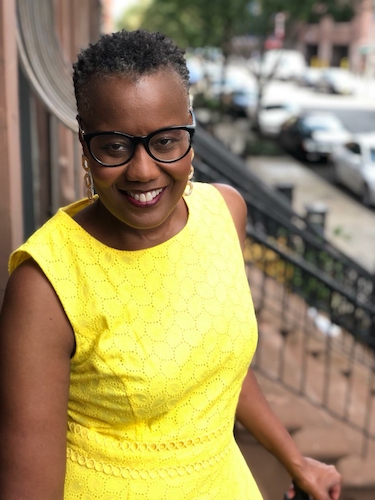
- The deaths of George Floyd, Ahmaud Arbery and Breonna Taylor made racial justice the conversation of the day. So companies are rushing to put together their diversity statements. We are challenging them. Once they have put together their statements, how will you work toward eliminating systemic racism? Statements need to move toward action. For the Urban League, as a result of our nation's racial reckoning we are creating a diversity lab which will be an opportunity for corporations to come together and share best practices for diversity and inclusion and have access to our employment pipeline. We are also launching a small business center, to help and support businesses who have been devastated by COVID-19.
- I have been advised to have more traditionally male leadership qualities. I can always grow and improve, but you should never be asked to take a leadership style that is not your own. Also young leaders do need to know that leadership can come in different genders, shapes and sizes.
- My passion is labeled emotion. As a result, building coalitions is even more important. I often have to have co-signers on ideas and projects as I move various efforts forward. Black women have to work harder, we have to be better prepared to stand up and stand out in a crowd. I don’t think I’ve ever been passed over for a promotion or position. But once in the position, I have had to fight to move forward.
- When I became CEO of the Urban League a former female CEO told me that I had a shorter runway to be successful. She said I had two years to create a new program, get a great funder, forward some legislation or launch a campaign. She said men would get five years, but for women I would only get two – and she was correct.
- I’ve gotten a lot of advice! The most recent advice I have gotten was about dividing up my life and work tasks into four buckets: things that are important and necessary, things that are important but not necessary, necessary but not important, and not important and not necessary. I literally had to go through everything I do and figure out what was truly important and necessary so that I don’t spend time with things that someone else says are important. Taking time to weigh each request with my overall goals and objectives has been transformative.
- I have both a mentor and an executive coach. They both talk about the full totality of career, life and balance and putting together my goals and not losing myself.
- It’s been good. They have helped me become aware of my blind spots and given me additional perspective. They identify when I’m too hard on myself and also when I am not pushing myself out of my comfort zone.
- I mentor the leadership of my young professionals (New York Urban League Young Professionals) and also various young women who I meet in the course of my leadership programs. Some of them are short-term mentorships and some are long-term and life-long relationships.
- I think it was important that early on in my career I joined a fellowship program where I was going to be assigned a mentor. Weeks passed and still I had not been paired with a mentor. Exasperated I finally called to see what was the issue. They admitted they were having a hard time finding an African American female CEO to serve as my mentor. I told them to stop trying and just pair me with a white man. And they did; and I learned a ton. He was honest with me about how my passion may be perceived. Some of his feedback I didn’t appreciate, but he was telling his truth. I don’t know any other way I would have gotten that feedback if I hadn’t been in the mentoring relationship with a white male.
Juanita Scarlett, Partner, Bolton-St. Johns
[[{"fid":"13190","view_mode":"default","fields":{"format":"default","field_file_image_alt_text[und][0][value]":"Juanita Scarlett","field_file_image_title_text[und][0][value]":"Juanita Scarlett"},"type":"media","field_deltas":{"42":{"format":"default","field_file_image_alt_text[und][0][value]":"Juanita Scarlett","field_file_image_title_text[und][0][value]":"Juanita Scarlett"}},"attributes":{"alt":"Juanita Scarlett","title":"Juanita Scarlett","style":"height: 575px; width: 400px;","class":"media-element file-default","data-delta":"42"}}]]
- When I started my career in government, there were very few women – especially women of color – in senior staff positions and fewer as elected officials. It was a challenge getting into “the room where it happens,” and even more of a challenge having your opinion valued. On many occasions, I would make a recommendation for how to proceed on an issue only to have it ignored, unheard and only put forward if my male colleague shared that opinion.
- Like most women of color in my profession, navigating the world of politics presents new challenges every day. I meet those challenges head-on because at this point in my career I know my value; my professional body of work speaks for itself. I don’t hesitate to use my voice. I also appreciate the adage of there is strength in numbers: I’m fortunate to work with and share experiences with other Black women and we support each other in navigating those challenges.
- I believe in having mentors and serving as one. My most impactful mentor is Elizabeth Moore, who was the first Black female counsel to the governor. She brought me into the administration of Gov. Mario M. Cuomo and offers guidance to me to this day. Liz just retired as the general counsel of Con Edison. There are other women for whom I have great admiration (some I don’t really know) but would love to adopt them as mentors … but it might be kind of strange to cold call them and ask why we haven’t been in touch regularly. And yes, I’m proud to connect with several rock star women coming up in the next generation who are making their mark in the world of politics.
- One piece of advice that I value is to not be afraid to ask questions – it doesn't show weakness to get a clearer picture of the situation, you don’t have to have all the answers right away. (And) I’ve ignored bad advice.
- Every woman of color that I know has experienced being overlooked and undervalued when competing against a white male counterpart – often someone with far less experience or credentials.
- Success to me is being happy, healthy and rewarded for doing what I love. There is no obstacle too great to overcome when you know your worth. Although I may lose out in the immediate battle, I have always taken the long view and had a long-term strategy for succeeding.
- The inflection point that we have experienced as a nation – emphasized by the tragic, senseless and avoidable killing of unarmed Black men and women, from Michael Stewart and Eleanor Bumpurs to George Floyd and Breonna Taylor – seems to have finally awakened the country to face up to its failures and ingrained racial injustice … and is shaping our political discourse for the better. We are starting to have conversations around racial and gender bias; from the streets to the boardrooms. These critical conversations should resonate with elected officials, political leaders and businesses and put people on notice that we will not accept less than we’re worth. We will raise our voices as we raise the consciousness of how business should be done.
Dawn Smalls, Partner, Jenner & Block
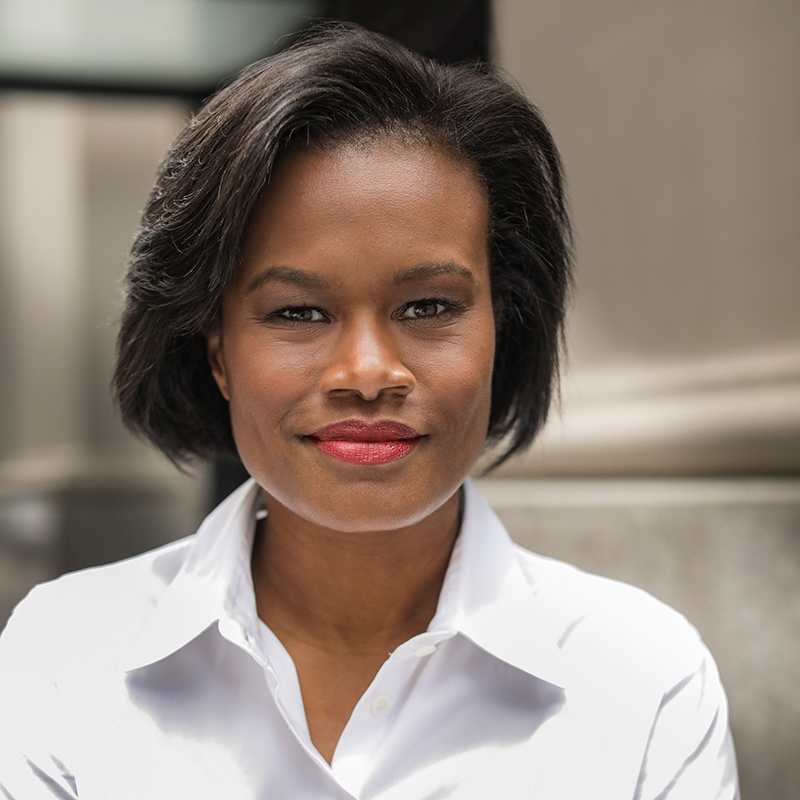
- As a young lawyer, I had a law student coming in to interview for a job refer to me to a colleague as the recruiting staff (She assumed as much since I greeted her when she came in.), and had a woman in line at a local lunch spot tell me how articulate I was and ask if she could help place me as an executive assistant. In the office, I, like many women, was often sidelined into what people now refer to as the office housework (e.g. taking notes, setting up meetings) rather than the prime assignments. I looked around, and it wasn’t just me, it was all the women on the team. So I put my foot down and demanded different (and better) work.
- I’ve had lots of mentors – and most of them did not look like me. These include people that I’ve known since I was in high school to people that mentored me as I began my career in the law. It also includes people who gave their time to talk to me about their path, and that I check in with from time to time. I've found their insights invaluable. I wouldn’t be where I am today without those people, and because of that, I am very invested in the mentorship of others.
- Following my race, a number of people reached out to me to speak about my run as they map out their own campaigns as first time candidates. I am strongly supportive of qualified talented people with an interest to serve throwing their hat in, and always make time to meet with them.
- As a political staffer, I observed a tendency to push Black women (and men for that matter) into base vote and minority outreach roles. That work is critical, but it's not all we can do; we can run the whole campaign too. As a candidate (for New York City public advocate in 2019), the fact that I was a Black woman was one of the core arguments for my candidacy. A city as large and diverse as NYC should not be led by all white men.
- My goal is always to find ways to be impactful and do something for the greater good. I think there’s lots of ways to do that – elected office is just one of them.
- I de-stress by finding a moment (and a corner now that I, along with many others, am working from home with my kids attending school remotely) away from my kids! I’ve also incorporated stretching and use of massage therapy tools to my stay-at-home/quarantine routine.
Shontell M. Smith, Chief of Staff and Counsel to the New York State Senate Majority
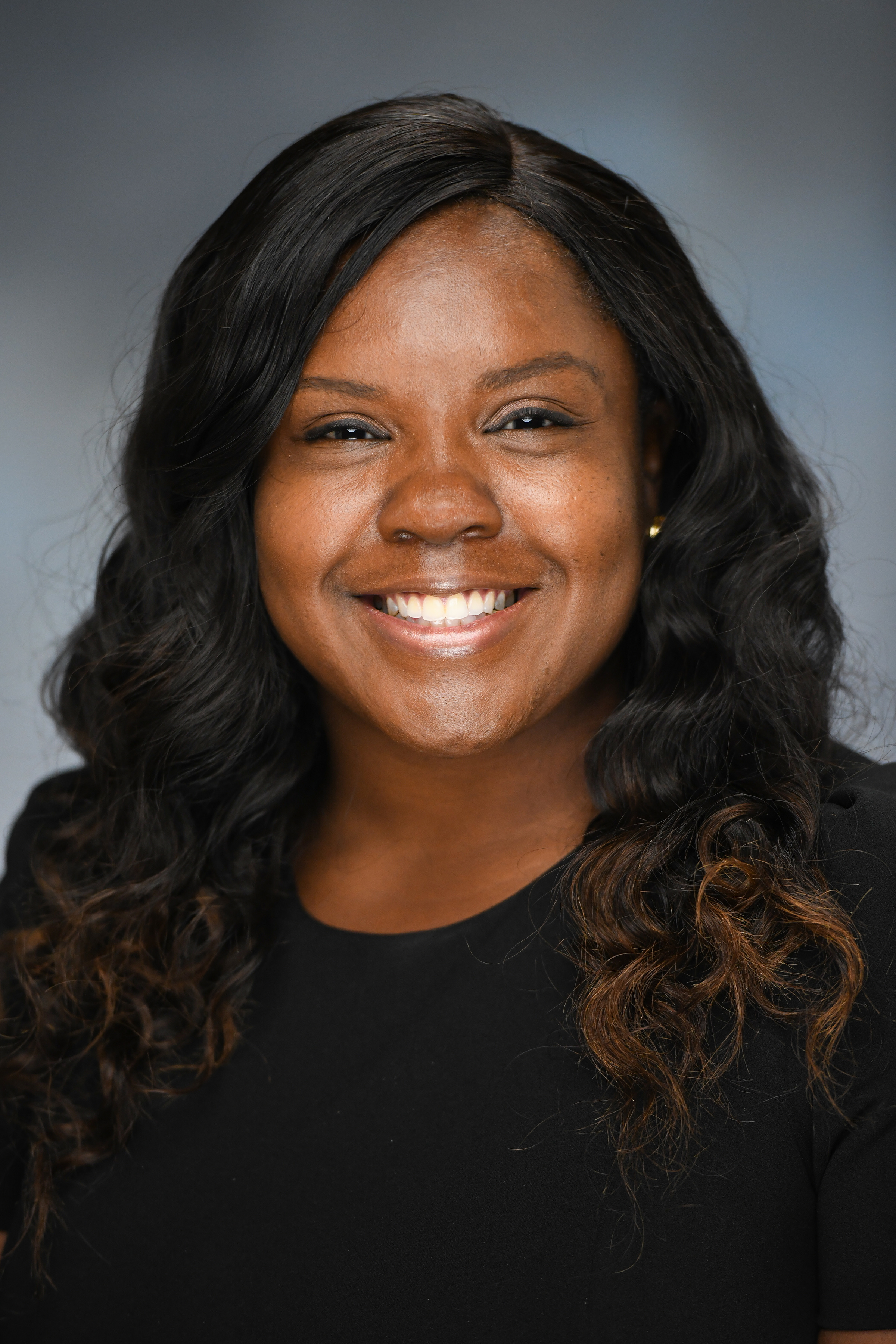
- When I started in politics, I had just finished a clerkship in Annapolis, Maryland, and knew very little about New York politics. The Senate Democrats had won the majority in the first time in recent history when I started, and the state and country were in the early midst of an economic recession.
- As a young African American woman, I found there were daily challenges I faced as a newbie in politics. To start, I found it difficult for some people to take me seriously because I looked young. Many of my older colleagues would dismiss me because of my age, while others dismissed me because of my lack of institutional knowledge of the Legislature.
- In addition to being young, I did not know how to maneuver in an environment totally different from my comfort zone. The terminology, practices and history were totally new to me. Although many of my colleagues grew up following local/state politics or had parents who were involved in politics, my engagement was every four years around national elections.
- Lastly, I do believe my gender and race also created additional barriers that I had to learn to overcome. Because the majority leader when I started in state government was an African American, there was often talk that I was hired as floor counsel because leadership wanted “diversity” in staff. Many considered me a patronage hire, which totally disregarded my accomplishments and worth.
- When I first started at the state Senate, the majority leader was Sen. Malcolm Smith, who was an African American man; followed by Sen. (John) Sampson, who served as conference leader and minority leader. The conference elected Andrea Stewart-Cousins as the first woman and first African American woman to be a conference leader and later elected her majority leader in 2019. In addition, I have always had a female boss in the Senate. It was Sen. Shelley Mayer, who then served as counsel to the majority, who hired me in 2009.
- Although my conference has always been diverse, the outside lobbying world who I interact with often is definitely dominated by white men. Although at times awkward, I have navigated those relationships the same way I navigate every other relationship in my life. I stay true to myself and let my work speak for itself. I believe it is our job to redefine the box that people try to put you in. The only way to do that is to be your true authentic self and put all your cards on the table.
- My mentor is my boss, Majority Leader Andrea Stewart-Cousins. We met over 12 years ago, and I can say she has truly helped me mature professionally. Over the years, she really took an interest in my professional career, constantly imparting wisdom when she can. Watching her break barriers with grace, integrity and grit has helped me navigate my own professional challenges throughout the years.
- I have always had a POC (person of color) as a conference leader. As chief of staff and counsel, I try to ensure a diverse workforce that reflects the diversity of our state, and when possible, impart personal and professional advice to those who are open to receive it. My journey in politics has been nontraditional, so I try to lead by example and show POC or women that they can break barriers and be anything they put their mind to.
- My boss constantly says the phrase, “You always have what you need.” I think those words have proven true time and time again for me personally. As a younger woman in politics, you often have “imposter syndrome” which is the idea that you’ve only succeeded due to luck, and not because of your talent or qualifications. Every time I have been promoted, there is that internal voice that makes me doubt that I can handle additional responsibilities. Whenever I hear that voice, I hear my boss’s voice telling me I have everything I need.
- “Be patient, after you work in the Legislature for a couple of years and learn the Legislature, you will be afforded opportunities.” This was what I heard all the time when I started the Senate. At the time there was a strong belief by some that only staffers with “institutional knowledge,” could be promoted to leadership positions. Obviously, this was not my experience. What I have learned over the years is that institutional knowledge does not automatically equate to wisdom; what matters most is your work product.
- I often feel misunderstood as a POC in politics with a position of authority. In my opinion, buzz terms such as intimidating or aggressive are often used to describe strong women in positions of power. Add to the fact that I am African American, then additional narratives such as “the angry Black female” often come to play. In my years in government and in my various positions I have seen comparable behavior exhibited by males in similar positions, however, their narratives lack the buzz words attached to people who look like me. When you are a WOC in a decision-making position, it is expected that you voice your opinion in a manner that makes those around you comfortable, even if it’s at the expense of your own comfort.
- The bias I have experienced in my life has been the motivation that fuels me. Throughout my career my abilities have always been doubted, fueling me to work harder, longer and smarter. When we won the majority in 2019, many people doubted whether I could handle the power and the responsibility that came with being both chief of staff and counsel. Many advised me to do things the way previous Senate Republican staffers had done it in the past and not to change the way things were done. People often wondered if I would have the “chops” to fight for my conference and maintain my ground.
- Two years later, I think I have proven that not only can I handle the massive responsibilities that come with my role, but that I can do so in a way that is unique to me.
- I think I can speak for everyone when I say COVID-19 has definitely changed the way I see the world and do business. During this pandemic there was a period when I worked from home, which really reminded me what and who mattered most. I think the pandemic has given me an opportunity to remind myself that people are human and that everyone is having a hard time right now. As such, I try to extend as much grace and compassion in my interactions to those who have to make hard decisions every day.
- I am a firm believer in self-care and try to dedicate time for mental, physical and emotional well-being every day. I love riding my Peloton, I meditate every day and I love spending time and talking with those who matter to me most.
- When I have a really bad day, I love Facetiming my six- and four-year-old nieces, Olivia and Maya.
- In the short term, I look forward to working with the Senate majority to lead our state out of the current pandemic and fiscal crisis. This is the first time a Democratic majority in the Senate has won consecutive two-year terms and has achieved a supermajority in terms of the number of members elected. This is uncharted territory, but I am surely enthusiastic to see how the Legislature steps up to the plate for all New Yorkers. During my tenure in the Senate, the Legislature has passed some phenomenal bills that have really changed the lives of New Yorkers, and I’ve been really proud to play a role in seeing so much progress in such a short time.
- I would like to use my knowledge and experience to try something new in the long term, and there are a number of potential opportunities in the public or private sector that I could envision for myself.
Elsie McCabe Thompson, President, Mission Society of New York City
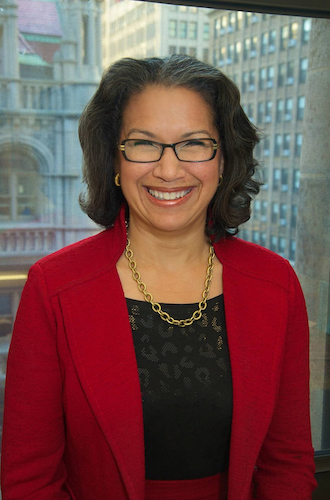
- The world of money is populated by white men whether that is in government, corporate America or philanthropy. I navigate them all the same way with pleasant persistence.
- I have had mentors and mentees. My most impactful mentor was a white professor in college that showed me how I could take established rules that didn’t work for me and find a way to turn that around to my advantage. I have been quietly “flouting” rules ever since. Throughout my entire professional career, I have been mentoring and will always continue to pay it forward.
- I want to bring about greater national, corporate and foundation board diversity for my people.
- I never look at what might have been for me, only how I can make it be better for others.
- If any established rule doesn’t work for you, then find out how it could.
Lupe Todd-Medina, President, Effective Media Strategies
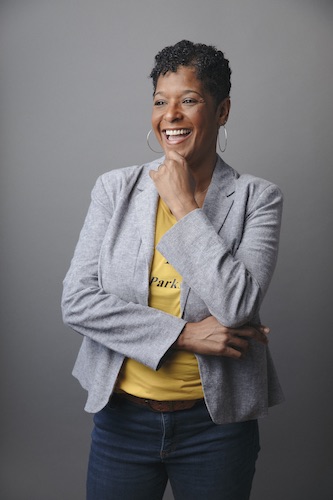
- I still continue to push back against being put in the “Black box.” I have both Fortune 100 clients and nonprofits dedicated to working with MWBE businesses. Being a Black professional woman should not exclude me from a chance to bid on the next great contract – and offer me the same rate of pay you were offering the white firms because I at least deserve parity.
- (I navigate the world of politics) one relationship at a time. Being in the communications space, I work with a lot of firms dominated by white men. I conduct myself with professionalism and go against the typical stereotypes. My hope is that my very existence and presence unnerves them just a little.
- My mentor when I arrived in New York City from my job working for then-Councilman Byron Brown in Buffalo has become a very close and dear friend. Juanita Scarlett was my first boss while working for Attorney General Eliot Spitzer. As Spitzer's press secretary, I watched how Juanita interacted with reporters and managed the office politics. I learned so much from her – and still do. Now when I mentor young, Black women – I can count 3 so far and all are doing great – I pass on some of what I’ve learned from Juanita.
- (Best piece of advice I’ve ever been given): “You are a business. You don’t have to like all your clients. If they pay well and on time, then you like them just fine.”
- In the political space, I have found that Black women are expected to do a lot of the everyday, laborious tasks – plus the job we were hired to do – for less pay and credit. I have watched many men – Black and white – failing up while I struggled. I no longer want the proverbial pat on my head for helping to get my girlfriends to the polls or getting that elected official out of a sticky situation; give me pay parity and credit when credit is due.
- I’m always growing and learning so I want to keep doing that. My goal since the pandemic is to stay working so I can keep helping my extended family here in the U.S. and overseas.
Lovely Warren, Mayor of Rochester
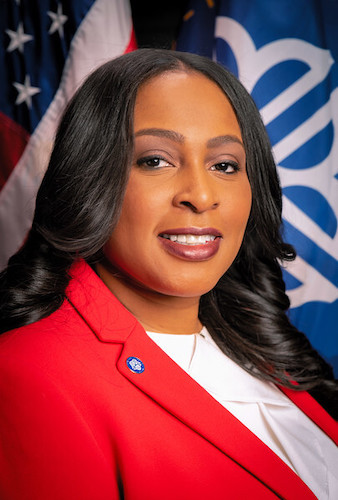
- At the beginning of my career, the obstacle I faced was not knowing when it was my time. There are times when one believes that they’ve been called to serve but were operating on their time, within their egos. When I ran for City Council the first time, I was fresh out of law school, admitted to the bar, and thought that since my mentor encouraged me to run, I should. However, I wasn’t ready. I lost that race by seven votes. I remembered the advice my beloved grandmother gave to me. She said, “Baby, I wanted to tell you this before, but it’s not your time. When it’s your time, you’ll know.” Soon after my grandmother’s advisement, legal counsel challenged the election results, but I knew my grandmother was right. It wasn’t my time.
- Two years later, I ran and won by over 80% of the vote. I was ready! I had learned that the seat belonged to the community, that public service was really about listening to people and doing my best to fulfill the community’s needs. I learned over those two years to work for the people. I needed to be among the people – to hear their cries, concern, hopes, and dreams. I was able to see clearly. The loss early on in my career taught me patience. It taught me to listen. It taught me that everything has a time. It helped me become the first female and second African American Mayor of the great City of Rochester, where the lives of our people are at the forefront of the Warren administration.
- My political mentor, the late Honorable Assemblyman David F. Gantt, taught me how to be a servant leader, how to listen, how to fight, and how to have tough skin. I learned long ago to speak truth to power fearlessly. I stand on the shoulders of Assemblyman Gantt and Shirley Chisholm, who were both unbought and unbossed, and all of the great African American politicians who cleared the path so that I may carry the torch and become the voice of the voiceless. I stand on the shoulders of my aunt – Dr. Lovely Thornton, who was the first in my family to attend college and earn a doctoral degree. I pull upon the strength of my ancestors - my beloved granddad, a sharecropper, who did not back down when faced with adversity, and my grandmother, who worked as a housekeeper at the exact same University that her grandson - my cousin, Dr. Caleb McClary attended to become a medical doctor.
- I think about our youngest citizens and new generations of leaders who will one day carry the torch and stand on my shoulders in a more equitable and accessible city, where all residents have the same opportunities for a better chance toward a promising future. Lastly, my service is rooted in faith, and I know nothing is new under the sun. White men may dominate the political world, but I’m going to serve our community to the best of my ability despite the challenges people throw in my way. I have to turn every stumbling block into a stepping stone.
- My mentor was the late Honorable Assemblyman David F. Gantt. Assemblyman Gantt, the first Black state elected official from Monroe County, affectionately called “Boss Man,” was my political mentor. Like a father to me, he was larger than life, never backed down from any challenge, and somehow made a way out of no way. His mentorship helped shape and mold me into the leader I am today.
- I began to benefit from his mentorship when I was allowed to be his intern as a young college student. My beloved grandparents said,” This is an opportunity of a lifetime, and you better not mess this up, have faith, do right, and maybe you can follow in his footsteps!” I had no idea that my internship with Assemblyman Gantt would change my career trajectory, but my entire life. He taught me about the ability to uphold the law and pass legislation that can change laws to help the oppressed, marginalized, and disenfranchised while lifting them as we climbed.
- I am grateful to pay forward the gift of mentorship. I have many mentees that are now all over the country and world paying it forward. Some have gone on to work for Congress, another is an English teacher in another country, and others have become lawyers and are currently in college or high school. I couldn’t be more proud of all of my mentees who motivate me to keep working hard, clearing the path for them to continue the legacy.
- It’s not easy being the first female African-American Mayor of the City of Rochester. My mentor, the late and beloved Assemblyman David F. Gantt, helped prepare me for the inevitable. The first time I stepped into his office as a young intern, he said, “Lovely, you have to work twice as hard and be twice as good. You cannot make any mistakes, and you must remember who and what you are because it’s not just about what you learn in law books in this business. You’re Black, and you’re a woman, so your path will not be easy; but, if you’re willing to listen and willing to learn, I’ll teach you everything I know, and he did, and that’s the advice that altered my thinking, leading toward becoming a servant leader. What you do will never be good enough for some people because for them, it’s not about the work it’s about the person doing the work. Do the work anyway!
- The worst advice I received is that people have your best interest at heart. This is fundamentally untrue, especially in this business. People do not have your best interest at heart, so I must be open to different perspectives; however, I cannot be naïve. I always appreciate the advice, and I am still willing to listen.
- Bias has impacted my success. However, it has been affected more locally than nationally. Nationally, there is a diverse culture where women of color have more access to leadership roles. There are more significant opportunities for women of color. For example, the African American Mayors Association appointed me first vice-president. I also serve and co-chair the National League of Cities’ Race, Equity and Leadership Council and I’m a member of the U.S. Conference of Mayors. I hope that women of color continue to fight and rise above biases to obtain the equity that will afford us the same access to influence and opportunities locally as they do nationally.
- My future goal includes leaving the city of Rochester in a better place than it was before my tenure as mayor. Some of those goals have been accomplished and include the International Plaza and the Roc City Skate Park opening, which were both on several administrations’ agendas before mine. Now, we have unveiled them both! That’s what makes it all worth it—giving our residents the ability to sell their goods, exercise, play, all while adding more jobs and vibrancy to our neighborhoods.
Maya Wiley, New York City Mayoral Candidate, Former Civilian Complaint Review Board Chair and Former Counsel to Mayor Bill de Blasio
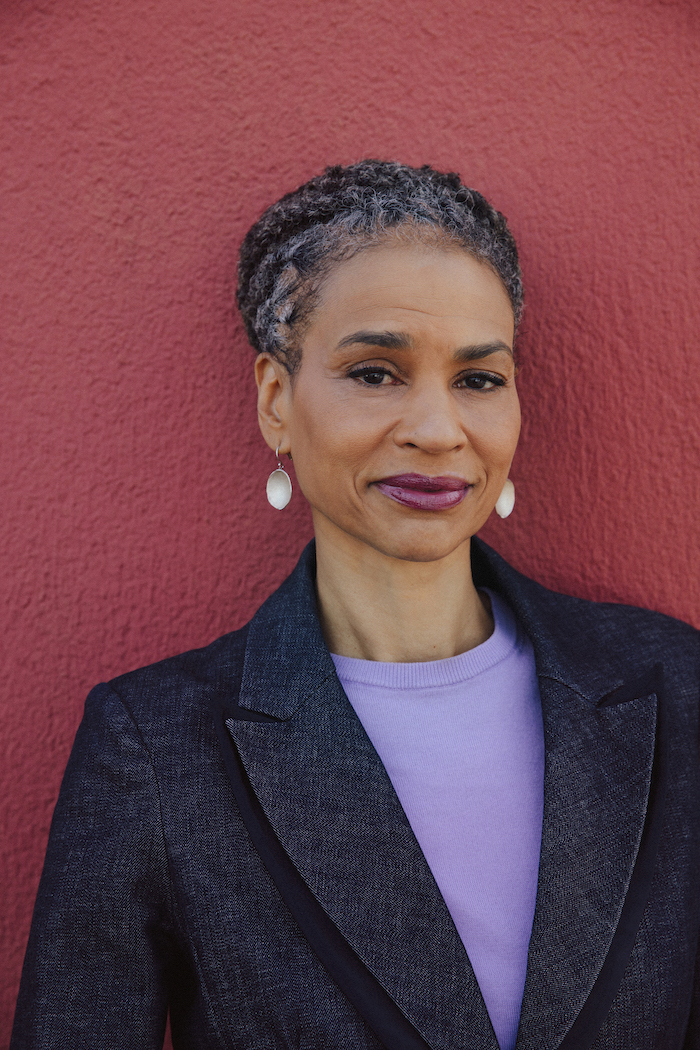
- I was just three years out of law school and was a junior attorney at the American Civil Liberties Union. I was almost fired from the ACLU for storming a board meeting with other junior lawyers to demand a union.
- I have fought bias and structural racism for three decades. Bias is real. Racism, sexism, homophobia and so many other forms of bias are real. And while I have been so fortunate to have had so much opportunity, bias has and continues to play a role for all of us. And yet, here we are, and we are rising!
- I have had so many wonderful mentors in my life and at this stage of it am gratified to pay it forward. As the highest-ranking woman of color in City Hall, I used to convene women of color for brown bag lunches just to discuss how we could navigate the challenges of being women of color in government. I have mentored public high school students and young nonprofit professionals.
- My mother used to tell me that life isn’t fair and that is not the right expectation. The expectation should be that we will fight to make it fair. And that is the best advice I ever received about the world, including the world of work.
- I was told by a supervisor that I should straighten my hair to effectively represent my clients. I said in response, “If I can’t win in court with my hair, then I can’t win in court with my skin either.”
- (I have experienced bias) too many times to name, although I have also been grateful for the many times I did not. On one occasion, appearing in court as an assistant United States attorney in an employment discrimination case, my opposing counsel was also a Black woman. It was a routine pretrial hearing. It would be unusual to have clients attend such a hearing. We were both wearing business suits, of course. This white, male judge entered and sat down and angrily shouted, “Where are the lawyers?” She and I looked at each other, and in that moment, we were on the same side.
- COVID-19 has changed everything – fear, trauma, hunger, joblessness, shuttered businesses, stress in families. It is a shared reality that this pandemic has changed and challenged the way we all do business and even how we experience our daily lives. Central to all my work has been relationships. This pandemic has forced us all to find new ways to maintain relationships and forge new ones because we are social beings. We need to look each other in the eye, read body language, dance together, sing together, debate together. All these things are more challenging in a time of COVID-19. But we are also able to use technology to pull together and are hosting people’s assemblies to engage each other and build relationships.
- (My future goals are) to make sure this city not only recovers from COVID-19, but is one that is stronger, more fair and just, where we don’t get displaced but get to develop strong, vibrant and safe communities. For me it isn’t just a campaign. It’s a mission. And the dignity we deserve is one that I want to contribute to in every way that I can.
Jacqueline S.L. Williams, Partner, State & Broadway
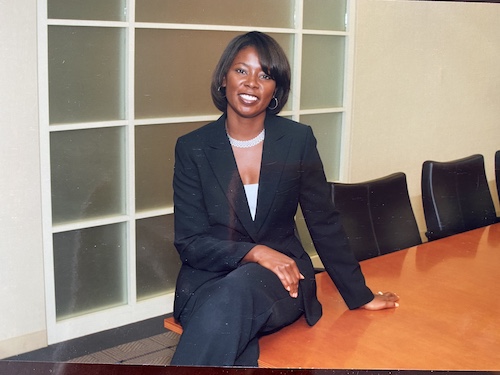
- The best career advice came from Basil Paterson, the political icon. When I first started my lobbying career at Meyer, Suozzi, English & Klein, I met Basil for a get-acquainted, forever memorable lunch. It was then he provided me three jewels:
- White men will wonder how you got in the room on equal footing with them; use their unsettledness to your advantage.
- Never leave the room without having your voice heard.
- What you don’t know, go out and learn.
- What I have learned from these past three decades is not to box myself into a place of comfort but instead remain unafraid to frame my own happiness and be ready to jump into the next opportunity.
- 2021 marks 30 years in my career. I walked into the halls as an Assembly legislative intern, not knowing what to expect and knowing only my fellow John Jay (College of Criminal Justice) classmate. I have been blessed to wear so many different hats that stretched my growth and tested my skill sets. I have helped move significant budgetary issues, assisted in navigating important statewide policy and spearheaded several institutional events. Along the way, the best of it all has been connecting with people who are not only good at what they do but are simply good. They are there – found over the years in both houses of the Legislature and on each side of the aisle. I have seen their sincerity as they govern to make this state better for us all. What I have learned from these past three decades is not to box myself into a place of comfort but instead remain unafraid to frame my own happiness and be ready to jump into the next opportunity.
- I have mentors and role models that I seek out and default to aid in my professional development. In 2004, after making up my mind to leave government service, it was Bruce Gyory, a trusted friend who took the time to walk me through the lobbying labyrinth and to explain industry options and its pitfalls. Through the years, I have had the luxury of tapping on his shoulder to discuss my thoughts as I push and test career boundaries.
- I bestow accolades and honor the female legislative pioneers who prepared the table at which I sit today. Their presence and passion for government service made it possible for me to make advances today. Therefore, I am well aware of whose shoulders I stand on. Going back even further, I was conscious of Shirley Chisholm’s political leadership. Her famous political slogan, “Unbought & Unbossed,” not only postered my office, but it was well-positioned in my mind. I admired her lady-boss attitude and fearlessness. She is my political “OG,” no squad supporting her has defined her place in history and operated at the highest government levels with that same boldness.
- For me, true success comes when it is transferable. So I gladly mentor younger people, both male and female (Black and white) in my industry. I affectionately refer to this crew as my professional babies. They have moved on to find permanent positions in local and state governments and become lawyers, educators and program directors. They have taken up positions in a plethora of career fields in and outside of New York state.
- I have learned to navigate government and politics by building alliances that focus on common interests and policy as the best formula for usurping male dominance. I try hard not to let my professional engagements pierce my personal veil. There is plenty of truth in the adage, “Today’s enemy can be tomorrow’s friend.”
- Another important observance is that the old boys’ network reacts to female presence very differently than it did a decade ago. It had to adjust to a powerful paradigm shift that repositioned women of color as instrumental brokers and gatekeepers to perpetuate their political and policy interests.
- Adversity is the price women of color often pay to get ahead. My pastor often says a barking dog doesn’t chase a parked car, only the moving cars. There have been many barking dogs along the way. Those dogs have names: racism, sexism, entitlement, privilege, unfairness, apathy, bias, bigotry and prejudice.
L. Joy Williams, National Political Strategist; Founder, LJW Community Strategies; Creator, Host and Producer of #SundayCivics on SiriusXM Urban View; President, Brooklyn NAACP; National Chair, Higher Heights for America PAC
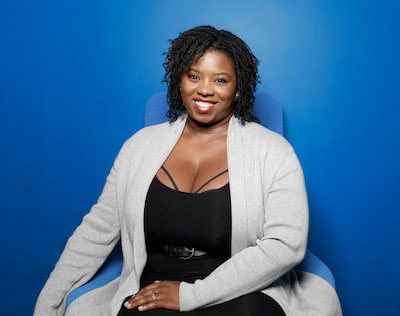
- I started in politics relatively young. For my white male peers, that youth was seen as an asset, and more senior folks immediately wanted to invest in their potential. For myself and women who looked like me, we quite often had to prove why we were worthy to even be in the room. That was in addition to navigating the sexism that exists in any professional field. I also contended with the issue of pay equity and title matching with overall responsibilities. I quite often found myself being paid less but being responsible for much more than my male counterparts.
- I have much more confidence in myself and in my talent than I did in the beginning of my career which helps me navigate "White Man Antics" in a much different way. I am no longer terrified that my career will be over because I challenged facts or strategy in a meeting. Additionally, I am much more rooted in my purpose of building and maintaining Black political power and politically empowering people of color overall. Having that north star helps me to think strategically about how to build relationships and coalitions based on shared interests and goals. I try to learn what motivates someone and what they care about to find commonality and then focus on building upon that.
- I have benefited tremendously from mentors, particularly a host of Black women who continue to pour into me. Women like Hazel Dukes, Denise Pease and the late Jacqueline Berrien, have had a tremendous influence on my career. My closest mentor and friend (and matron of honor) is Karen Boykin-Towns. Our relationship is reciprocal which I always advocate all mentor-mentee relationships should be. I think of a mentor as not only someone who can help me but someone I can also help and share resources with. I also serve as a mentor to a number of young women, some who are in Brooklyn NAACP, which I am president of, and some who are within the world of politics. I think it is important for me to teach what I know and multiply the number of young Black women at the table. If there were only six women doing the type of work I do when I started, I want to make sure there are at least another 30 at the table before I'm off the scene.
- "You will never be able to out-white a white man." While that phrase is something I learned from Karen Boykin Towns, several mentors and family members have some version of it. The point being that our goal isn't to be white, it isn't to have power and dominion over others or to be gatekeepers. We don't want to oppress people, we want to empower people. The other most important job altering advice I received is a saying within my faith. "What God has for you, is for you." I don't make decisions on what contract to take, or campaign to work on based on what the "normal" trajectory" is for a political consultant. I make decisions based on what fits my political values and my mission in life. Sometimes that may leave others perplexed about the work I'm doing because they don't think it will advance my career or that I will lose something.



